Product Description
Detailed Photos
Our goal is to provide high-quality, modern design, reasonable prices, and good after-sales product services
Company Profile
Factory View
FAQ
| 1- If you are interested in purchasing products,please contact our responsible person,online or telephone communication
Most friends contact our responsible person to inquire: 2-About the price The price in the information is our company’s approximate wholesale price, 3-About delivery We will confirm the way of cooperation and cooperation reached for you to 4-About cooperation We are in line with the production of excellence, CZPT and trustworthy busi- 5- how can we guarantee quality? Always a pre-production sample before mass production; |
/* January 22, 2571 19:08:37 */!function(){function s(e,r){var a,o={};try{e&&e.split(“,”).forEach(function(e,t){e&&(a=e.match(/(.*?):(.*)$/))&&1
| After-sales Service: | 12 Months |
|---|---|
| Warranty: | 12 Months |
| Type: | Variable Timing Wheel |
| Certification: | TUV |
| Applicable: | Truck, Car, Machinery |
| Quality: | Top |
| Customization: |
Available
| Customized Request |
|---|
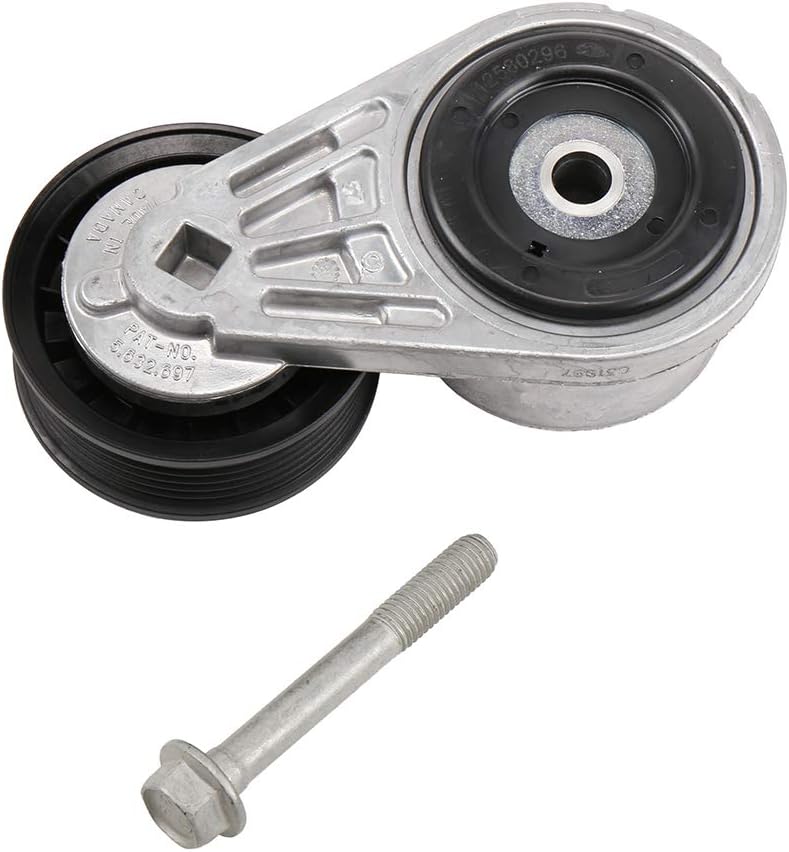
Can you explain the benefits of using belt tensioners in preventing slippage and optimizing power transmission in machinery?
Using belt tensioners in machinery offers several benefits in preventing slippage and optimizing power transmission. Belt tensioners play a critical role in maintaining proper tension in the belt, ensuring efficient power transfer, and preventing slippage that can lead to decreased performance and premature wear. Here’s a detailed explanation of the benefits:
- Slippage Prevention:
- Efficient Power Transmission:
- Load Handling:
- Reduced Wear and Maintenance:
- System Reliability:
- Noise and Vibration Reduction:
Belt tensioners are primarily designed to prevent slippage between the belt and the pulleys. Slippage occurs when the belt loses traction with the pulleys, resulting in a loss of power transmission efficiency. Belt tensioners apply sufficient force to keep the belt tightly engaged with the pulleys, minimizing the risk of slippage. By maintaining the appropriate tension, tensioners ensure a reliable grip between the belt and the pulleys, preventing power loss, and maintaining optimal performance.
Proper tension provided by belt tensioners is crucial for efficient power transmission in machinery. When the belt is properly tensioned, it remains securely engaged with the pulleys, allowing for efficient transfer of power. The tensioner ensures that the belt maintains the necessary grip and traction to transmit power effectively, minimizing energy losses associated with slippage. By optimizing power transmission, belt tensioners contribute to improved overall system efficiency and performance.
Belt tensioners help in handling varying loads in machinery. As loads fluctuate, the tension in the belt needs to be adjusted to accommodate the changes. Belt tensioners with adjustable features allow for fine-tuning of the tension, ensuring that the belt remains properly tensioned under different load conditions. This flexibility helps optimize power transmission and prevents slippage, even when the machinery is subjected to varying loads, resulting in reliable and consistent performance.
Slippage between the belt and the pulleys can cause accelerated wear on both components. Belt tensioners mitigate slippage, reducing the frictional forces that lead to excessive wear. By maintaining proper tension, tensioners distribute the load evenly across the belt, minimizing localized wear. This results in reduced belt wear, extending the lifespan of both the belt and the pulleys. Additionally, by preventing slippage, belt tensioners help reduce the need for frequent belt replacements and adjustments, resulting in reduced maintenance requirements and costs.
Using belt tensioners improves the overall reliability of machinery. By preventing slippage and maintaining optimal power transmission, tensioners help ensure the consistent performance of belt-driven systems. This reduces the risk of unexpected power losses, interruptions in operation, or damage to other system components. Belt tensioners contribute to the overall reliability and uptime of the machinery, enhancing productivity and reducing the potential for costly downtime.
Slippage between the belt and the pulleys can generate noise and vibrations in machinery. Belt tensioners help minimize these issues by maintaining proper tension and preventing slippage. By ensuring a secure grip between the belt and the pulleys, tensioners reduce the likelihood of belt resonance, belt flutter, or excessive vibrations. This results in quieter operation and improved comfort for operators or users of the machinery.
In summary, using belt tensioners in machinery offers several benefits in preventing slippage and optimizing power transmission. By maintaining proper tension, tensioners prevent slippage, ensure efficient power transfer, handle varying loads, reduce wear and maintenance needs, enhance system reliability, and minimize noise and vibrations. Incorporating belt tensioners into machinery design helps maximize performance, extend component lifespan, and ensure reliable operation in various industrial applications.
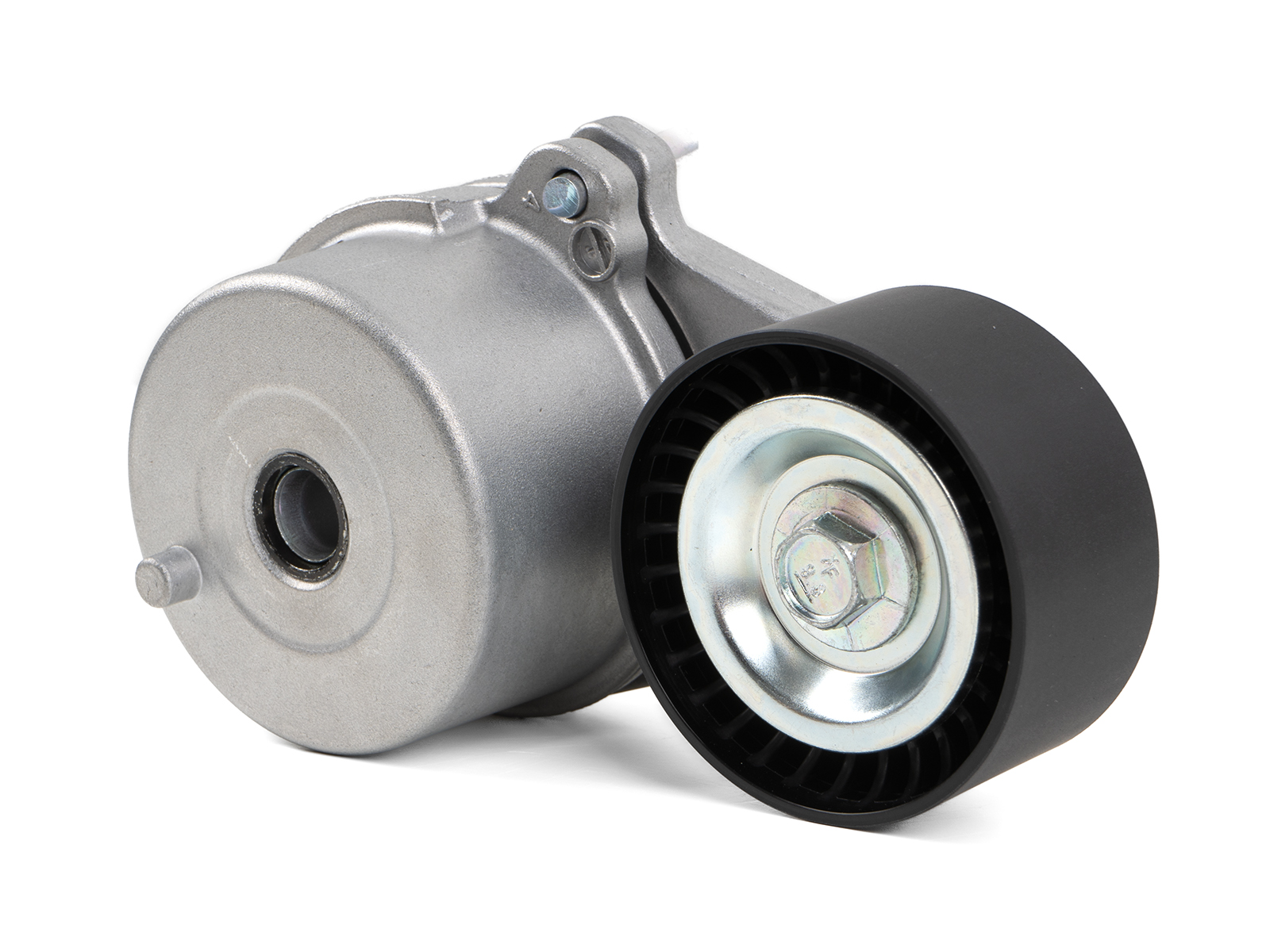
How do innovations and advancements in belt tensioner technology impact their use?
Innovations and advancements in belt tensioner technology have a significant impact on their use, enhancing performance, reliability, and versatility. These advancements introduce new features, improve functionality, and address specific challenges associated with belt-driven systems. Here’s a detailed explanation of how innovations and advancements in belt tensioner technology impact their use:
- Improved Tensioning Mechanisms:
- Enhanced Durability:
- Increased Compatibility:
- Noise and Vibration Reduction:
- Advanced Monitoring and Diagnostic Capabilities:
- Integration with System Controls:
New tensioning mechanisms and designs have been developed to provide more precise and efficient tension control. Innovations such as automatic tensioners or self-adjusting tensioners utilize advanced mechanisms that can continuously monitor and adjust the tension in real-time. This improves the overall performance and reliability of belt-driven systems, as the tension can be accurately maintained even under varying loads and operating conditions.
Advancements in materials and manufacturing techniques have contributed to the development of more durable belt tensioners. High-strength alloys, advanced polymers, and specialized coatings are used to increase the resistance to wear, corrosion, and fatigue. These improvements extend the service life of belt tensioners, reducing the frequency of maintenance and replacement and improving the overall reliability of belt-driven systems.
Innovations in belt tensioner technology have led to increased compatibility with a wide range of belt drive systems. Manufacturers have developed adjustable tensioners that can accommodate different belt widths, profiles, and types. This versatility allows for easier integration and replacement of tensioners in various industrial or automotive applications, reducing the need for custom solutions and simplifying maintenance and repairs.
New technologies and designs have been introduced to minimize noise and vibration generated by belt tensioners. Innovative damping materials, improved bearing systems, and optimized geometries help reduce noise and vibration levels, resulting in quieter and smoother operation. This is particularly beneficial in applications where noise reduction and operator comfort are essential.
Advancements in belt tensioner technology have facilitated the integration of monitoring and diagnostic capabilities. Smart tensioners equipped with sensors and connectivity features can provide real-time data on tension levels, temperature, and other operating parameters. This enables predictive maintenance, early fault detection, and optimized performance. By leveraging data-driven insights, operators can make informed decisions, improve system efficiency, and prevent unexpected failures.
Innovative belt tensioner technologies can be integrated with system controls and automation platforms. This allows for seamless integration into larger control systems, enabling automated tension adjustments, synchronization with other components, and coordinated operation. The integration of belt tensioners with system controls enhances system performance, efficiency, and overall productivity.
In summary, innovations and advancements in belt tensioner technology have a significant impact on their use. These advancements improve tensioning mechanisms, enhance durability, increase compatibility, reduce noise and vibration, enable advanced monitoring and diagnostics, and facilitate integration with system controls. By incorporating these innovations, belt tensioners offer improved performance, reliability, and versatility, leading to enhanced efficiency and reduced maintenance requirements in various industrial and automotive applications.
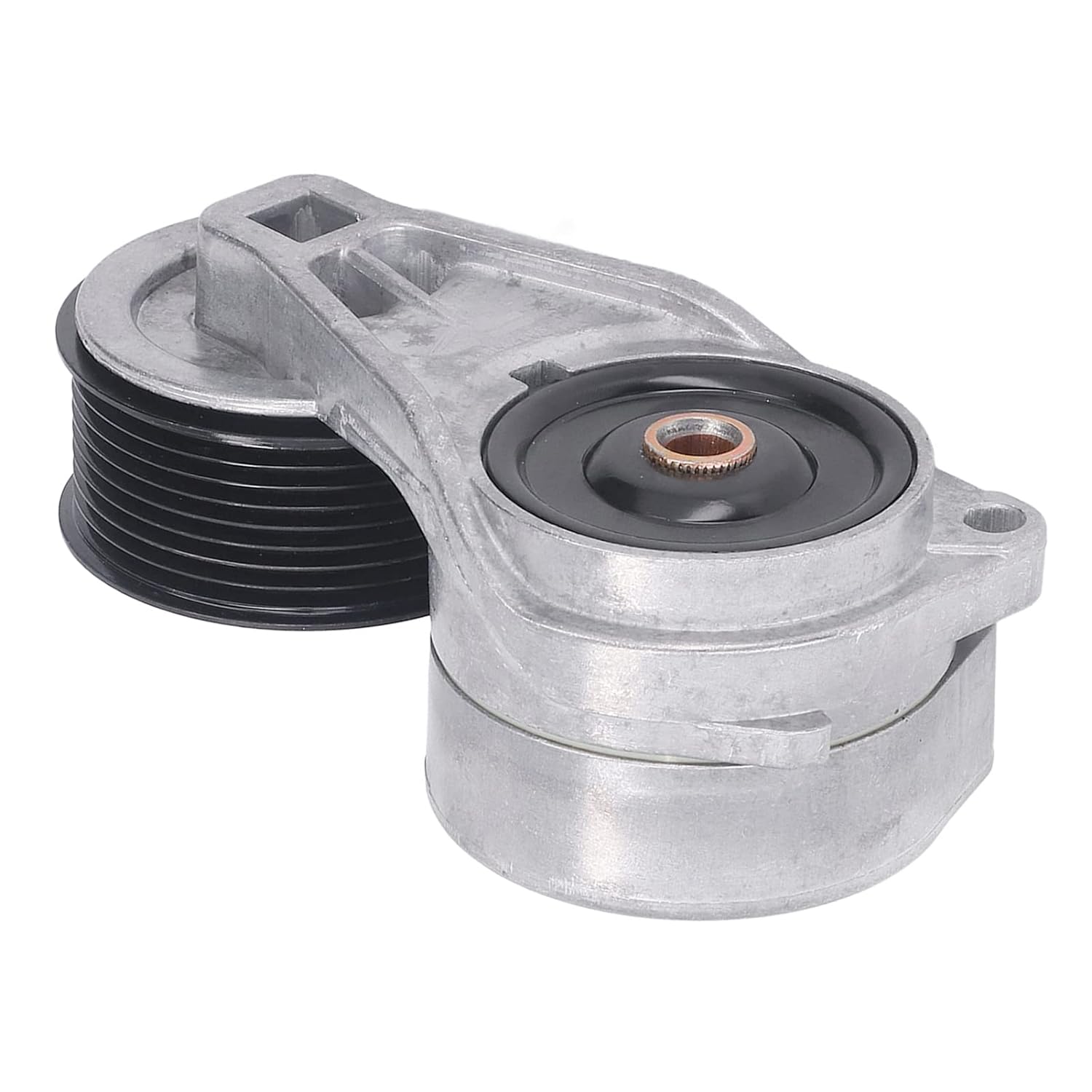
Can you explain the importance of proper belt tensioning in machinery and automotive applications?
Proper belt tensioning is of utmost importance in machinery and automotive applications as it directly affects the performance, efficiency, and reliability of belt-driven systems. Here’s a detailed explanation of the importance of proper belt tensioning:
- Power Transmission Efficiency:
- Belt Life and Reliability:
- Reduced Noise and Vibration:
- Optimal Load Distribution:
- Improved Safety:
Proper belt tensioning ensures efficient power transmission from the driving pulley to the driven pulley. When a belt is under-tensioned, it can slip on the pulleys, resulting in a loss of power and reduced efficiency. On the other hand, over-tensioning can cause excessive friction, increased wear, and unnecessary strain on the components. By maintaining the optimal tension, the belt can effectively transfer power without slipping, maximizing the overall efficiency of the machinery or vehicle.
Correct belt tensioning significantly impacts the lifespan and reliability of the belt itself. Insufficient tension can lead to belt slippage, which causes wear and can result in the premature failure of the belt. Conversely, excessive tension can accelerate wear, increase stress on the belt, and cause it to stretch or deform over time. By maintaining the proper tension, the belt experiences less wear and fatigue, leading to a longer service life and improved reliability.
Improper belt tensioning can contribute to excessive noise and vibration in machinery and automotive systems. When a belt is either under-tensioned or over-tensioned, it can cause vibrations that propagate through the system, leading to noise and discomfort. Proper tensioning helps to minimize belt vibrations, ensuring smoother operation and reducing noise levels, which is particularly important in applications where noise reduction is desired, such as in automotive interiors or precision machinery.
The correct tension in a belt allows for the proper distribution of the load across the belt and the pulleys. Insufficient tension can result in uneven load distribution, causing localized stress on certain sections of the belt and pulleys. This can lead to accelerated wear and potential failure of the system. Proper tensioning ensures that the load is evenly distributed, minimizing stress concentrations and promoting balanced wear, thereby improving the longevity and performance of the belt drive system.
Proper belt tensioning is crucial for maintaining safe operation in machinery and automotive applications. Inadequate tension can lead to unexpected belt slippage, which can result in sudden loss of power, reduced braking effectiveness, or compromised operation of auxiliary systems. On the other hand, excessive tension can generate excessive heat, leading to belt degradation or even catastrophic failure. By ensuring the correct tension, the risk of these safety hazards is minimized, enhancing the overall safety of the equipment or vehicle.
In conclusion, proper belt tensioning is essential in machinery and automotive applications to ensure efficient power transmission, prolong belt life, reduce noise and vibration, achieve optimal load distribution, and enhance safety. Following manufacturer guidelines and regularly inspecting and adjusting the belt tension can help maintain the desired tension levels and maximize the performance and reliability of belt-driven systems.


editor by CX 2024-04-23
China high quality Auto Spare Parts Car Bearing Timing Belt Tensioner Pulley for CZPT A1 A3 A5 V5 OEM 473h-1007060 broken axle on car
Product Description
Product Description
Product name: Auto Spare Parts Car Bearing Timing Belt Tensioner Pulley For Chery A1 A3 A5 V5 OEM 473H-10571
OEM Number:473H-10571
Application: For Chery A1 A3 A5 V5
Package: Original genuine packing, Brand packing, Neutral packing with parts number label
MOQ:1 PC
Delivery time:1-7days
Place: HangZhou China
TIPS: The adaptation of parts is very complex, you need to provide chassis VIN number or car details {model, capacity, year of production (not buy) year} to customer service, and according to the customer service recommend to choose the appropriate type.
Detailed Photos
Packaging & Shipping
Shipping by Sea: containers goods,
Sample order by air: China Post, Ali-express standard shipping, E-pocket, EMS,UPS,TNT,DHL,Fedex, etc
Company Profile
Our Advantages
1. One-stop service to supply all jac motors spare parts (JAC motors j2 j3 j4 j5 j6, s2 /T40,s3/ T5 ,s5/ T6 ,JAC refine ,JAC sunray ,JAC pickup T6 T8,JAC Truck … )
SAIC MG, Maxus Parts, CZPT spare parts
Chery, Changan, BYD, CZPT GWM, Brillance, Geely, Xihu (West Lake) Dis.feng spare parts
Mercedes Benz Parts,
Gates Auto Parts, Phc Parts
2. MOQ: 1PC
3. We will reply you for your inquiry in 24 hours.
4. After sending, we will track the products for you once every 2 days, until you get the products. When you got the goods, and give us a feedback.If you have any questions about the problem, contact with us, we will offer the solve way for you.
FAQ
Q1. What is your terms of packing?
A: Generally, we pack our goods in neutral boxes, original OE cartons or brands AQBP packages
Q2. How to do the order if your need parts have not in this shop?
A: If in this shop has no the parts you need, please tell us, and we will find it from our big warehouse, take photos and send price to you.
Q3. How much you should pay money if buy some items together?
A: After buying some items together, there will be different shipping fees and different goods price, so we can discuss how to do the best shipping way.
Q4. How about your delivery time?
A: Generally, it will take 30 to 60 days after receiving your advance payment. The specific delivery time depends on shipping way and different countries.
Q5. Can you produce according to the samples?
A: Yes, we can produce by your samples or technical drawings. We can build the molds and fixtures.
Q6: How do you make our business long-term and good relationship?
A:1. We keep good quality and competitive price to ensure our customers benefit;
2. We respect every customer as our friend and we sincerely do business and make friends with them, no matter where they come from.
/* January 22, 2571 19:08:37 */!function(){function s(e,r){var a,o={};try{e&&e.split(“,”).forEach(function(e,t){e&&(a=e.match(/(.*?):(.*)$/))&&1
| Type: | Tensioner Bearing |
|---|---|
| Material: | Metal |
| Car Make: | Chery |
| Fitment: | Chery |
| Model: | A5 |
| Year: | 2004- |
| Customization: |
Available
| Customized Request |
|---|
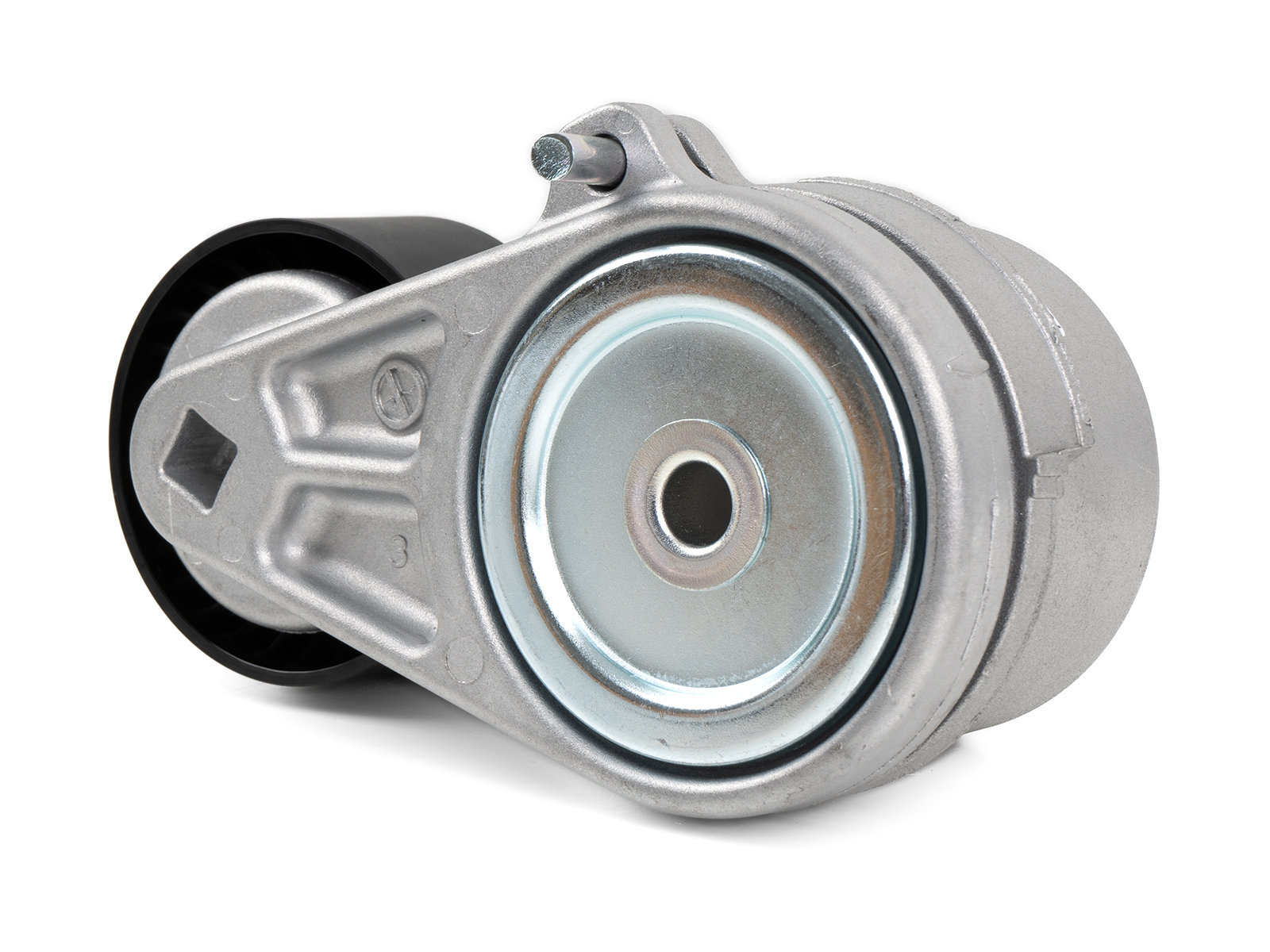
Can you provide guidance on the selection and sizing of belt tensioners for specific belt applications?
When selecting and sizing belt tensioners for specific belt applications, several factors need to be considered to ensure optimal performance and longevity. Here’s a detailed guidance on the selection and sizing of belt tensioners:
- Belt Type and Size:
- System Requirements:
- Tensioner Type:
- Tensioner Design and Mounting:
- Tensioner Load Capacity:
- Environmental Considerations:
- Manufacturer Recommendations:
Start by identifying the type and size of the belt used in the application. Belts can vary in terms of width, length, profile (V-belt, timing belt, etc.), and construction material (rubber, polyurethane, etc.). The tensioner should be compatible with the specific belt type and size to ensure proper fit and functionality.
Consider the requirements of the belt-driven system. Evaluate factors such as the desired tension level, operating speed, load conditions, and environmental factors. The tensioner should be capable of providing the required tension force while accommodating the system’s operating parameters.
Choose the appropriate tensioner type based on the application’s needs. Common types include automatic tensioners, idler pulley tensioners, spring-loaded tensioners, and hydraulic tensioners. Each type has its advantages and limitations, so select the one that best suits the specific belt application.
Consider the design and mounting requirements of the tensioner. Evaluate the space availability, mounting configuration, and alignment with other components in the belt drive system. Some tensioners offer adjustable mounting positions or different design variations to accommodate various installation scenarios.
Check the load capacity of the tensioner to ensure it can handle the expected loads and forces in the belt system. Consider factors such as the belt tension, shock loads, and dynamic forces. The tensioner should have adequate load capacity to prevent premature wear or failure under normal operating conditions.
Assess the environmental conditions in which the tensioner will operate. Factors such as temperature extremes, moisture, dust, chemicals, and exposure to UV radiation can impact the tensioner’s performance and durability. Choose a tensioner that is designed to withstand the specific environmental challenges of the application.
Refer to the manufacturer’s guidelines and recommendations for selecting and sizing the tensioner. Manufacturers often provide technical data, specifications, and selection guides that assist in choosing the appropriate tensioner for specific belt applications. Follow their recommendations to ensure compatibility and optimal performance.
It is important to note that the selection and sizing of belt tensioners may require technical expertise and consideration of specific application requirements. If in doubt, consult with belt tensioner manufacturers or industry experts who can provide further guidance based on their knowledge and experience.
In summary, when selecting and sizing belt tensioners for specific belt applications, consider the belt type and size, system requirements, tensioner type, design and mounting, load capacity, environmental conditions, and manufacturer recommendations. By carefully evaluating these factors, you can choose a suitable tensioner that ensures proper tensioning, reliable operation, and extended belt life in the belt-driven system.
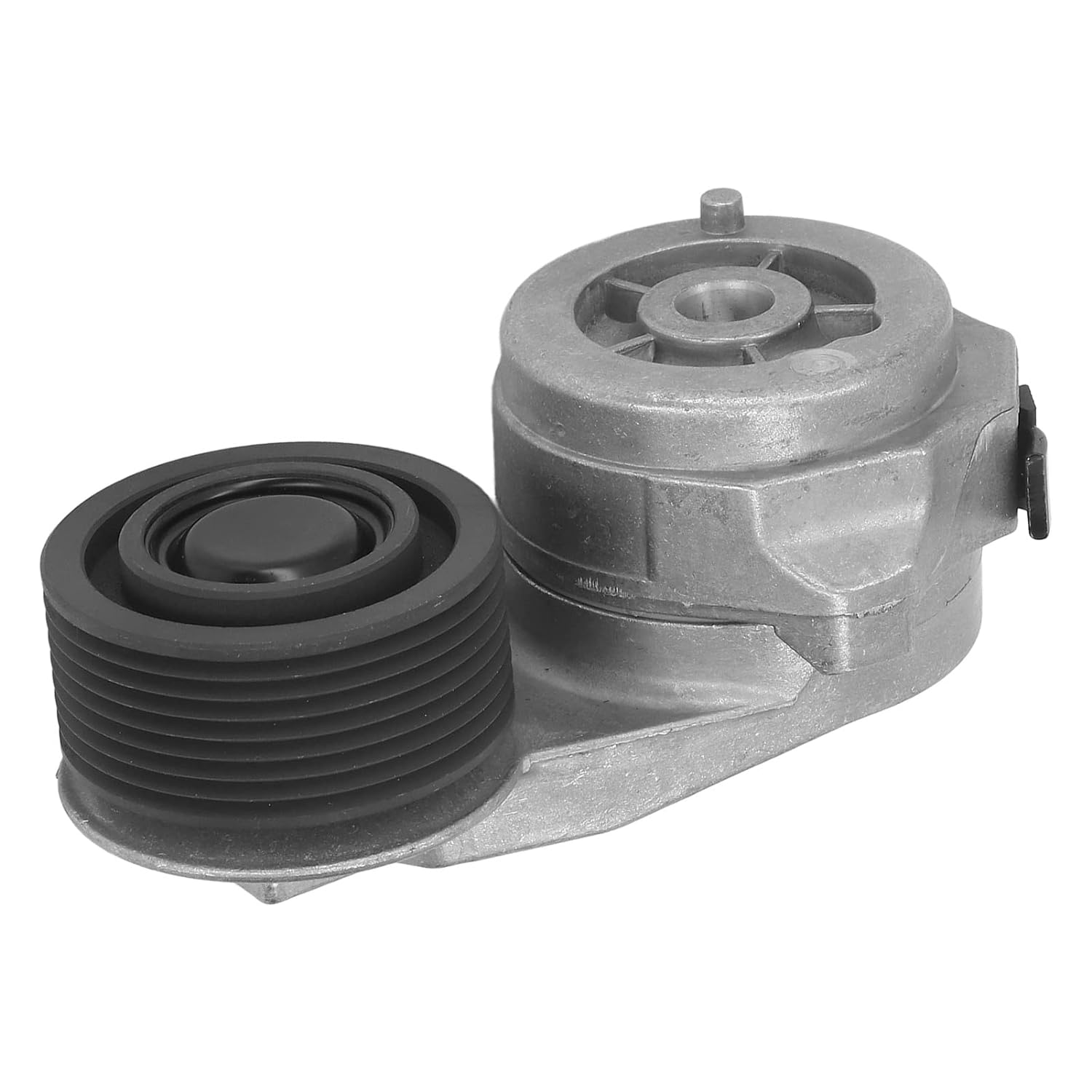
What is the impact of proper belt tensioning on the lifespan and performance of belts?
Proper belt tensioning has a significant impact on the lifespan and performance of belts. Maintaining the correct tension in belts is crucial for optimal power transmission, minimizing slippage, reducing wear, and ensuring reliable operation. Here’s a detailed explanation of the impact of proper belt tensioning:
- Prevents Slippage:
- Reduces Wear and Friction:
- Ensures Optimal Power Transmission:
- Reduces Maintenance Requirements:
- Enhances Belt Lifespan:
- Improves System Reliability:
Proper belt tensioning prevents slippage between the belt and the pulleys or sheaves it is running on. When belts slip, power transmission efficiency decreases, and the belt can wear rapidly. By applying the correct tension, the belt grips the pulleys or sheaves firmly, ensuring efficient power transfer and minimizing slippage, which can lead to improved performance and energy efficiency.
When belts are improperly tensioned, excessive wear and friction can occur. Insufficient tension can cause the belt to slip and slide on the pulleys, generating heat and increasing friction between the belt and the pulley surfaces. This friction leads to premature wear of the belt and the pulleys, reducing their lifespan. On the other hand, excessive tension can put excessive stress on the belt, leading to accelerated wear and potential damage. Proper belt tensioning helps to minimize wear and friction, extending the lifespan of belts and associated components.
Correct tensioning of belts ensures optimal power transmission from the driving pulley to the driven pulley. When belts are properly tensioned, they can efficiently transfer the required power without energy losses due to slippage or excessive tension. This results in improved overall system performance, as the transmitted power is effectively utilized for driving various components or performing specific tasks.
Proper belt tensioning can help reduce maintenance requirements and associated costs. When belts are correctly tensioned, they experience less wear, require fewer adjustments, and have a lower chance of failure or premature replacement. By maintaining the appropriate tension, the need for frequent belt replacements and unplanned downtime due to belt-related issues can be significantly minimized, contributing to improved productivity and cost savings.
The lifespan of belts is directly influenced by proper tensioning. When belts are under the correct tension, they experience less stress, wear, and fatigue. This can prolong the lifespan of the belt, reducing the frequency of replacements and associated costs. Additionally, proper tensioning helps to distribute the load evenly across the belt, preventing localized wear and extending the overall durability of the belt.
Proper belt tensioning contributes to the overall reliability of belt-driven systems. By maintaining the correct tension, the risk of unexpected belt failures, slippage-related issues, and associated equipment downtime is significantly reduced. This ensures that the system operates reliably, minimizing interruptions in production or operation and enhancing overall system efficiency and performance.
In summary, proper belt tensioning plays a vital role in maximizing the lifespan and performance of belts. It prevents slippage, reduces wear and friction, ensures optimal power transmission, reduces maintenance requirements, enhances belt lifespan, and improves system reliability. By following manufacturer recommendations and using appropriate tensioning techniques, operators can optimize belt performance, minimize downtime, and achieve efficient and reliable operation of belt-driven systems.

Can you describe the various types of belt tensioners, such as automatic or manual tensioners?
There are various types of belt tensioners available, each designed to fulfill specific requirements in maintaining belt tension. Here’s a description of the different types of belt tensioners:
- Manual Belt Tensioners:
- Automatic Belt Tensioners:
- Hydraulic Belt Tensioners:
- Eccentric Belt Tensioners:
- Idler Pulley Tensioners:
Manual belt tensioners are the most basic type and require manual adjustment to set and maintain the desired tension. They typically consist of an adjustable arm or bracket that can be moved to increase or decrease the tension in the belt. Manual tensioners are commonly used in applications where tension adjustments are infrequent or can be easily accessed for manual adjustment. They are simple, cost-effective, and widely used in various industries.
Automatic belt tensioners, also known as self-adjusting or spring-loaded tensioners, are designed to maintain the proper tension automatically. They incorporate a spring mechanism that applies constant tension to the belt, compensating for belt elongation and wear over time. Automatic tensioners are commonly used in applications where frequent manual adjustments are impractical or where consistent tension control is essential. They provide convenience, minimize maintenance requirements, and ensure optimal tension without the need for manual intervention.
Hydraulic belt tensioners utilize hydraulic pressure to maintain belt tension. They consist of a hydraulic cylinder or piston that applies force to the tensioner arm, adjusting the tension in the belt. Hydraulic tensioners are commonly used in applications with high load requirements or variable operating conditions. They provide precise tension control, can compensate for changes in temperature and load, and are often employed in heavy-duty industrial machinery and automotive applications.
Eccentric belt tensioners use an eccentric mechanism to adjust the tension in the belt. They typically feature an eccentric pulley or roller that can be rotated to increase or decrease the tension. Eccentric tensioners are commonly used in applications where precise tension adjustments are required, such as high-performance engines or systems with specific belt tension specifications. They offer fine-tuning capabilities and are often found in automotive racing, performance tuning, and specialized machinery.
Idler pulley tensioners, also known as fixed tensioners or idler pulley assemblies, are a type of belt tensioner that utilizes an idler pulley to maintain tension. They are typically positioned on the slack side of the belt, providing guidance and tension control. Idler pulley tensioners are commonly used in applications where a fixed tension is desired, and the tensioning capability is provided by other components in the system, such as an automatic tensioner or an adjustable drive pulley.
In addition to these types, there are also specialized belt tensioners designed for specific applications or industries, such as torsional vibration dampers used in automotive engines to reduce vibrations, or belt tensioners with built-in dampening mechanisms to minimize noise in certain applications.
Overall, the choice of belt tensioner depends on factors such as the application requirements, load conditions, frequency of tension adjustments, and the desired level of automation and control. Selecting the appropriate type of belt tensioner is crucial to maintaining optimal belt tension and ensuring the efficient and reliable operation of belt-driven systems.


editor by CX 2024-03-15
China high quality Belt Tensioner Bearing Vkm64018 OEM 252872A600 for CZPT and CZPT Cars a cv axle
Product Description
Quick view:
| Name | Pulley idler 252872A6 | Audi/ VW | ||
| 68,109,243 | VKM11571 | CR1682 | F-9 | S koda |
| 571109243G | VKM11015 | CR1676 | F-234390 | Audi/ VW |
| 51,109,243 | VKM11571 | CR1863 | F-22 | Audi/ VW |
| 074109243R | VKM11072 | CR1889 | F-234389 | Audi/ VW |
| 57119243C | VKM11105 | CR1805 | F-234396 | Audi/ VW |
| 57119243K | VKM11106 | CR1892 | F-232489 | Audi/ VW |
| 06A109479C | VKM11113 | CR3140 | F-123814 | Audi/ VW |
| 06B109243D | VKM11116 | CR3139 | Audi/ VW | |
| 036109243R | VKM11120 | CR3146 | F-231221.1 | Audi/ VW |
| 038109243H | VKM11130 | CR3176 | Audi/ VW | |
| 078109243C | VKM112 | Audi/ VW | ||
| 078109243K | VKM11201 | CR1642 | Audi/ VW | |
| 4443703 | VKM12 | Fiat Lancia | ||
| 4386575 | VKM12 | Fiat Lancia | ||
| 608 | Alfa Romeo | |||
| 4443446 | VKM12012 | CR1662 | Fiat Lancia | |
| 4385583 | VKM121 | Fiat Lancia | ||
| 5997325 | VKM12101 | CR1646 | F-225717 | Alfa Romeo |
| 432 0571 | VKM12103 | CR1661 | F-123635 | Fiat Lancia |
| 7553564 | VKM12151 | CR1644 | F-123636 | Fiat Lancia |
| 7609213 | VKM12153 | CR1854 | Fiat Lancia | |
| 5966.1 | Fiat Lancia | |||
| 7772961 | VKM12172 | CR3014 | Fiat Lancia |
ZheJiang Mighty (SI Bearing)are providing deep groove ball bearing, tapered roller bearing, pillow block bearing, spherical roller bearing, angular contact ball bearing, needle bearing, self-aligning ball bearing, linear bearing, wheel hub bearing, hub unit, clutch release bearing, belt tensioner, etc.
Our Bearing Advantage:
1.Free Sample bearing
2.ISO certified
3.Bearing Small order accepted
4.In Stock bearing
5.OEM bearing service
6.Professional: Over 20 years manufacture bearing
7.Customized bearing, Customer’s bearing drawing or samples accepted
8.Competitive price
9.TT Payment, Paypal, Alibaba payment, Trade Assurance Order
Mighty Exhibitions:
FAQ:
Q: Can you help with my own brand?
A: Sure. We can make for your brands. We can mark your brand name and use your box’s design with the legal authority letter.
Q: How can I make an inquiry?
A: You can contact us by email, telephone, WhatsApp, , etc.
Q: How long can reply inquiry?
A: Within 24 hours.
Q: Which Service you can provide?
A: 1. Help customers to choose correct bearing
2. Professional team, make your purchase easily
Q: When are you going to deliver?
A: Sample: 5-15 business days after payment is confirmed.
Bulk order:15-60 workdays after deposit received…
Q: What’s your delivery way?
A: By sea, by air, by train, express as your need.
Q: What are your terms of delivery?
A: EXW, FOB, CFR, CIF, DAP, etc.
Q: Can you support the sample order?
A: Yes, we can supply the sample if we have parts in stock, but the customer has to pay the sample payment(according to the value of the samples) and the shipping cost.
Q: What are you going to do if there has a claim for the quality or quantity missing?
A: 1. For quality, during the warranty period, if any claim for it, we shall help customer to find out what’s the exactly problem. Using by mistake, installation problem, or poor quality? Once it’s due to the poor quality, we will arrange the new products to customers.
2. For missing quantities, there have 2 weeks for claiming the missing ones after receiving the goods. We shall help to find out where it is.
/* March 10, 2571 17:59:20 */!function(){function s(e,r){var a,o={};try{e&&e.split(“,”).forEach(function(e,t){e&&(a=e.match(/(.*?):(.*)$/))&&1
| After-sales Service: | Yes |
|---|---|
| Warranty: | 12 Month |
| Type: | Tensioner Bearing |
| Material: | Chrome Steel |
| Tolerance: | P0 |
| Certification: | ISO9001, TS16949 |
| Samples: |
US$ 50/Piece
1 Piece(Min.Order) | |
|---|
| Customization: |
Available
| Customized Request |
|---|
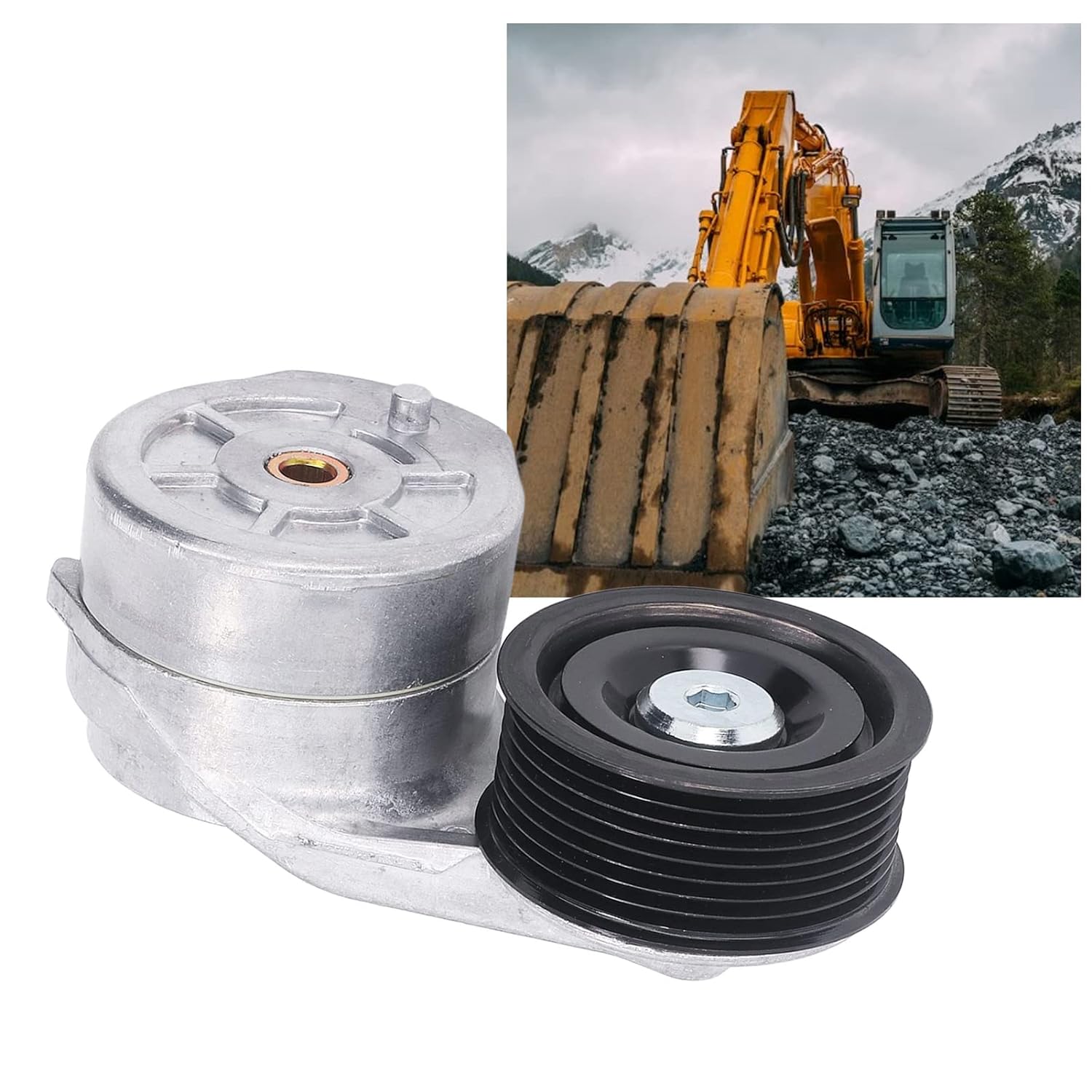
How do belt tensioners enhance the overall efficiency and lifespan of belts in various applications?
Belt tensioners play a crucial role in enhancing the overall efficiency and lifespan of belts in various applications. They are designed to maintain proper tension in the belt, ensuring optimal power transmission, minimizing slippage, and reducing wear. Here’s a detailed explanation of how belt tensioners enhance efficiency and lifespan:
- Optimal Tension:
- Compensating for Belt Stretch:
- Reduced Slippage:
- Improved Belt Life:
- Reduced Maintenance:
- Noise and Vibration Reduction:
Belt tensioners are responsible for maintaining the correct tension in the belt. Proper tension is essential for efficient power transmission and preventing belt slippage. By applying the right amount of tension, belt tensioners ensure that the belt remains securely engaged with the pulleys, allowing for efficient transfer of power. This optimal tension minimizes energy losses, improves system efficiency, and reduces the risk of premature belt wear or failure due to inadequate tension.
Belts can stretch over time due to various factors such as normal wear, temperature changes, or load variations. Belt tensioners are designed to compensate for belt stretch by automatically adjusting the tension as needed. This feature helps maintain consistent belt tension and ensures proper power transmission, even as the belt elongates over its service life. By compensating for belt stretch, tensioners prevent slack in the belt, reduce the risk of belt jumping or misalignment, and extend the lifespan of the belt.
Slippage between the belt and the pulleys can lead to power loss, decreased efficiency, and accelerated belt wear. Belt tensioners help reduce slippage by maintaining the appropriate tension in the belt. The tensioner applies sufficient force to keep the belt tightly engaged with the pulleys, preventing slip under normal operating conditions. This enhanced grip improves power transmission efficiency, ensures accurate timing in timing belt applications, and minimizes the risk of belt-related issues caused by slippage.
Proper tension and reduced slippage provided by belt tensioners contribute to an extended lifespan of belts. By maintaining the correct tension, tensioners minimize the stress and strain on the belt, reducing the likelihood of premature wear or failure. They help distribute the load evenly across the belt, reducing localized wear and increasing the overall durability of the belt. Additionally, by preventing belt slippage, tensioners minimize the frictional forces that can cause heat buildup and accelerated belt degradation. This results in improved belt life and reduced maintenance costs.
Belt tensioners help reduce the need for frequent belt adjustments and maintenance. With a properly tensioned belt, the risk of belt-related issues such as misalignment, excessive wear, or premature failure is minimized. This reduces the frequency of belt replacements or adjustments, resulting in reduced maintenance downtime and costs. Belt tensioners also contribute to overall system reliability by ensuring consistent performance, reducing the need for frequent manual interventions or re-tensioning.
Improper tension or slippage in belts can lead to excessive noise and vibrations in the system. Belt tensioners help mitigate these issues by maintaining the correct tension and reducing slippage. By ensuring proper belt engagement, tensioners minimize noise generation and vibration levels, enhancing the overall comfort and performance of the system.
In summary, belt tensioners enhance the overall efficiency and lifespan of belts by maintaining optimal tension, compensating for belt stretch, reducing slippage, improving belt life, reducing maintenance needs, and minimizing noise and vibrations. By ensuring proper tension and reducing wear, belt tensioners contribute to efficient power transmission, extended belt life, and improved reliability of belt-driven systems in various applications.
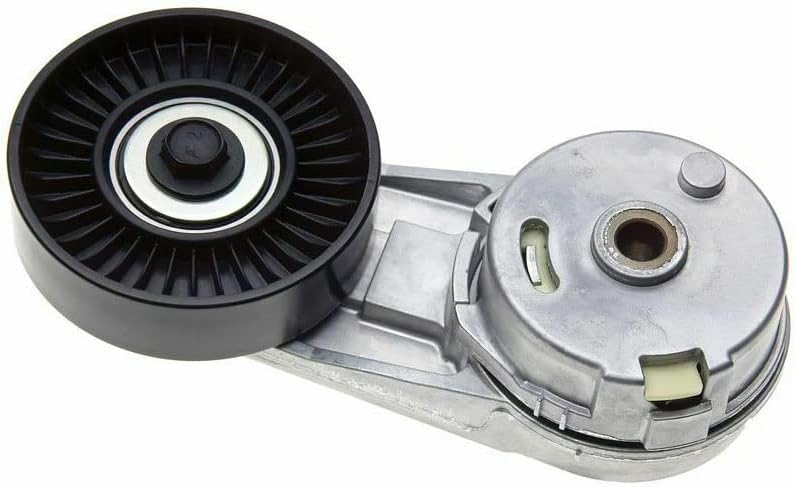
Can you provide examples of products or equipment that rely on belt tensioners for efficient operation?
Yes, there are numerous products and equipment that rely on belt tensioners for efficient operation. Belt tensioners play a crucial role in maintaining optimal tension in belts, ensuring proper power transmission, minimizing slippage, and extending the lifespan of belts and associated components. Here are some examples of products and equipment that commonly utilize belt tensioners:
- Automotive Engines:
- Industrial Machinery:
- Agricultural Equipment:
- HVAC Systems:
- Pumping Systems:
- Power Tools:
- Exercise Equipment:
Belt tensioners are essential components in automotive engines. They are commonly used in the serpentine belt system, which drives various engine accessories such as the alternator, power steering pump, air conditioning compressor, and water pump. Tensioners ensure that the serpentine belt remains properly tensioned to prevent belt slippage and maintain efficient operation of these engine accessories.
A wide range of industrial machinery relies on belt tensioners for efficient operation. Examples include conveyor systems, packaging equipment, printing machines, textile machinery, and woodworking machinery. Belt tensioners in these applications maintain proper tension in belts that drive moving components, ensuring consistent power transmission, smooth operation, and reduced downtime due to belt-related issues.
In agricultural equipment such as tractors, combines, and harvesters, belt tensioners are critical for the proper operation of belts that drive components like the fan, water pump, and various harvesting mechanisms. Tensioners help maintain optimal belt tension, preventing slippage and ensuring efficient power delivery to these vital agricultural machinery components.
Heating, ventilation, and air conditioning (HVAC) systems rely on belt tensioners for efficient operation of the blower fans, compressors, and pumps. Belt tensioners in HVAC systems maintain the correct tension in belts, ensuring proper airflow, efficient cooling or heating, and reliable operation of the HVAC equipment.
Pumping systems, including water pumps, fuel pumps, and hydraulic pumps, often incorporate belt tensioners to maintain the optimal tension in belts. These tensioners contribute to efficient power transmission, preventing slippage and ensuring reliable fluid transfer in various industries, such as water treatment, oil and gas, and construction.
Belt-driven power tools, such as belt sanders, grinders, and lathes, rely on belt tensioners to maintain proper tension in the belts that drive the tool’s rotating components. Tensioners in power tools ensure efficient power transfer, reduce belt wear, and enhance the tool’s overall performance.
Many types of exercise equipment, including treadmills, stationary bikes, and rowing machines, incorporate belt tensioners to ensure smooth and efficient operation. These tensioners maintain proper tension in the belts that drive the equipment’s resistance mechanisms, allowing users to achieve desired workout intensity and providing a consistent exercise experience.
These are just a few examples of the wide range of products and equipment that rely on belt tensioners for efficient operation. Belt tensioners are used in various industries and applications where belt-driven systems are employed, ensuring reliable power transmission, minimizing belt wear, and contributing to overall system performance and longevity.

Can you describe the various types of belt tensioners, such as automatic or manual tensioners?
There are various types of belt tensioners available, each designed to fulfill specific requirements in maintaining belt tension. Here’s a description of the different types of belt tensioners:
- Manual Belt Tensioners:
- Automatic Belt Tensioners:
- Hydraulic Belt Tensioners:
- Eccentric Belt Tensioners:
- Idler Pulley Tensioners:
Manual belt tensioners are the most basic type and require manual adjustment to set and maintain the desired tension. They typically consist of an adjustable arm or bracket that can be moved to increase or decrease the tension in the belt. Manual tensioners are commonly used in applications where tension adjustments are infrequent or can be easily accessed for manual adjustment. They are simple, cost-effective, and widely used in various industries.
Automatic belt tensioners, also known as self-adjusting or spring-loaded tensioners, are designed to maintain the proper tension automatically. They incorporate a spring mechanism that applies constant tension to the belt, compensating for belt elongation and wear over time. Automatic tensioners are commonly used in applications where frequent manual adjustments are impractical or where consistent tension control is essential. They provide convenience, minimize maintenance requirements, and ensure optimal tension without the need for manual intervention.
Hydraulic belt tensioners utilize hydraulic pressure to maintain belt tension. They consist of a hydraulic cylinder or piston that applies force to the tensioner arm, adjusting the tension in the belt. Hydraulic tensioners are commonly used in applications with high load requirements or variable operating conditions. They provide precise tension control, can compensate for changes in temperature and load, and are often employed in heavy-duty industrial machinery and automotive applications.
Eccentric belt tensioners use an eccentric mechanism to adjust the tension in the belt. They typically feature an eccentric pulley or roller that can be rotated to increase or decrease the tension. Eccentric tensioners are commonly used in applications where precise tension adjustments are required, such as high-performance engines or systems with specific belt tension specifications. They offer fine-tuning capabilities and are often found in automotive racing, performance tuning, and specialized machinery.
Idler pulley tensioners, also known as fixed tensioners or idler pulley assemblies, are a type of belt tensioner that utilizes an idler pulley to maintain tension. They are typically positioned on the slack side of the belt, providing guidance and tension control. Idler pulley tensioners are commonly used in applications where a fixed tension is desired, and the tensioning capability is provided by other components in the system, such as an automatic tensioner or an adjustable drive pulley.
In addition to these types, there are also specialized belt tensioners designed for specific applications or industries, such as torsional vibration dampers used in automotive engines to reduce vibrations, or belt tensioners with built-in dampening mechanisms to minimize noise in certain applications.
Overall, the choice of belt tensioner depends on factors such as the application requirements, load conditions, frequency of tension adjustments, and the desired level of automation and control. Selecting the appropriate type of belt tensioner is crucial to maintaining optimal belt tension and ensuring the efficient and reliable operation of belt-driven systems.


editor by CX 2024-02-24
China high quality Auto Timing Belt Tensioner Pulley Bearing Fe1h-12-700A for Fords Ranger Mazda near me manufacturer
Product Description
| Specifications of Bearing |
We have all kinds of bearings, just tell me your item number and quantity,best price will be offered to you soon
The material of the bearings, precision rating, seals type,OEM service,etc, all of them we can make according to your requirements.
Product Description of CZPT wheel hub bearing
Product Description:
Application
Widely used in Paper machines, conveyor equipment, rotary kilns, drums, tube mills, converters, large electrical machines,
rail vehicles,the mining, metallurgical, chemical industry, agriculture, transportation and other machinery.
Production process
1. CZPT machining of steel pipe;
2. The inner & outer ring grinding;
3. The precision work of inner ring & outer ring;
4. Bearing cleaning;
5. The Assembly of inner ring , outer ring , bearing balls & cage, etc;
6. Bearing inspection( precison, noise & vibration levels);
Specifications of CZPT wheel hub bearing 25BWD01
| Product name | NSK bearing 25BWD01 | |
| Dimension | 25*52*42mm | |
| Brand name | NSK | |
| Material | chrome steel | |
| Weight | 0.36 Kg | |
| Hardness | 58~62 | |
| Quality standard | SGS ISO9001 |
| Showing of Bearing |
| Parameters of Bearing |
More details of CZPT wheel hub bearing
| Boundary dimensions (mm) | Model | Basic load ratings (N) | Mass (kg) | |||
| d | D | B | C r | Cor | ||
| 25 | 52 | 42 | 25BWD01 | 28 500 | 21 400 | 0.36 |
| 27 | 60 | 50 | 27BWD01J | 42 500 | 32 500 | 0.36 |
| 28 | 58 | 42 | 28BWD03A | 33 500 | 25 700 | 0.4 |
| 61 | 42 | 28BWD01A | 38 500 | 29 800 | 0.53 | |
| 30 | 55 | 26 | 30BWD08 | 15 600 | 14 700 | 0.26 |
| 63 | 42 | 30BWD01A | 40 500 | 33 000 | 0.55 | |
| 68 | 45 | 30BWD04 | 52 500 | 40 000 | 0.69 | |
| 32 | 72 | 45 | 32BWD05 | 58 500 | 45 000 | 0.8 |
| 34 | 64 | 37 | 34BWD04B | 36 500 | 31 000 | 0.82 |
| 64 | 37 | 34BWD11 | 36 500 | 31 000 | 0.46 | |
| 66 | 37 | 34BWD10B | 40 500 | 33 500 | 0.51 | |
| 68 | 42 | 34BWD09A | 44 000 | 35 000 | 0.64 | |
| 68 | 37 | 34BWD09A | 44 000 | 35 000 | 0.54 | |
| 35 | 65 | 37 | 35BWD19E | 36 500 | 31 000 | 0.48 |
| 68 | 30 | 35BWD07 | 42 500 | 36 500 | 0.48 | |
| 68 | 30 | 35BWD07A | 40 500 | 34 500 | 0.48 | |
| 68 | 36 | 35BWD16 | 42 500 | 36 500 | 0.48 | |
| 72 | 31 | 35BWD06A | 50 000 | 40 000 | 0.55 | |
| 36 | 68 | 33 | 36BWD04 | 42 500 | 36 500 | 0.48 |
| 72 | 42 | 36BWD03 | 50 000 | 40 000 | 0.68 | |
| 72.041 | 34 | 36BWD01B | 50 000 | 40 000 | 0.57 | |
| 37 | 74 | 45 | 37BWD01 | 52 500 | 44 000 | 0.79 |
| 38 | 70 | 37 | 38BWD19 | 44 500 | 39 500 | 0.48 |
| 70 | 38 | 38BWD21 | 44 500 | 39 500 | 0.57 | |
| 71 | 30 | 38BWD09A | 45 500 | 39 000 | 0.5 | |
| 71 | 39 | 38BWD22 | 42 000 | 37 500 | 0.62 | |
| 72 | 33 | 38BWD12 | 48 500 | 42 000 | 0.56 | |
| 72.041 | 34 | 38BWD04 | 47 500 | 41 000 | 0.55 | |
| 74 | 33 | 38BWD01A | 52 500 | 44 000 | 0.6 | |
| 74 | 50 | 38BWD06D | 52 500 | 44 000 | 0.82 | |
| 74 | 40 | 38BWD10B | 52 500 | 44 000 | 0.69 | |
| 74 | 33 | 38BWD15A | 52 500 | 44 000 | 0.61 | |
| 74 | 33 | 38BWD24 | 48 000 | 43 000 | 0.62 | |
| 76 | 43 | 38BWD23A | 48 000 | 43 500 | 0.82 | |
| 80 | 33 | 38BWD18 | 47 500 | 46 000 | 0.79 | |
| 39 | 68 | 37 | 39BWD03 | 38 000 | 34 000 | 0.5 |
| 72 | 37 | 39BWD01L | 47 500 | 41 000 | 0.6 | |
| 74 | 39 | 39BWD05 | 48 500 | 42 500 | 0.66 | |
| 40 | 74 | 40 | 40BWD06D | 54 000 | 47 000 | 0.66 |
| 74 | 42 | 40BWD12 | 48 000 | 43 000 | 0.71 | |
| 74 | 36 | 40BWD15A | 48 000 | 43 000 | 0.62 | |
| 74 | 34 | 40BWD16 | 50 500 | 45 500 | 0.59 | |
| 76 | 38 | 40BWD05 | 52 500 | 44 500 | 0.7 | |
| 76 | 33 | 40BWD08A | 51 500 | 48 000 | 0.61 | |
| 80 | 34 | 40BWD07A | 65 500 | 56 000 | 0.73 | |
| 80 | 34 | 40BWD14 | 47 500 | 46 000 | 0.77 | |
| 42 | 76 | 33 | 42BWD12 | 46 000 | 43 000 | 0.65 |
| 76 | 35 | 42BWD06 | 50 500 | 46 000 | 0.64 | |
| 78 | 38 | 42BWD09 | 55 000 | 48 500 | 0.72 | |
| 80 | 45 | 42BWD11 | 59 000 | 50 500 | 0.9 | |
| 80 | 34 | 42BWD13 | 47 500 | 46 000 | 0.76 | |
| 43 | 76 | 43 | 43BWD12A | 48 000 | 43 500 | 0.71 |
| 79 | 38 | 43BWD08 | 55 000 | 48 500 | 0.77 | |
| 79 | 45 | 43BWD13A | 49 500 | 47 000 | 0.87 | |
| 80 | 45 | 43BWD03 | 55 000 | 48 500 | 0.91 | |
| 82 | 45 | 43BWD06B | 62 000 | 54 500 | 0.94 | |
| 45 | 83 | 45 | 45BWD06 | 57 500 | 52 500 | 0.95 |
| 84 | 39 | 45BWD03 | 58 500 | 52 500 | 0.88 | |
| 84 | 40 | 45BWD07B | 69 000 | 61 000 | 0.89 | |
| 84 | 40 | 45BWD09 | 64 500 | 57 500 | 0.9 | |
| 84 | 45 | 45BWD10 | 58 500 | 52 500 | 0.98 | |
| 46 | 79 | 45 | 46BWD01A | 49 500 | 47 000 | 0.79 |
| 48 | 89 | 42 | 48BWD01 | 69 000 | 62 000 | 0.9 |
| 49 | 84 | 50 | 49BWD02 | 46 000 | 47 000 | 1 |
| 88 | 46 | 49BWD01B | 64 500 | 60 000 | 1.05 | |
| 27 | 52 | 43 | 27KWD02 | 53 000 | 73 500 | 0.41 |
| 30 | 58 | 42 | 30KWD01A | 62 000 | 89 000 | 0.5 |
| 34 | 67.8 | 43 | 34KWD03D | 89 500 | 120 000 | 0.73 |
| 35 | 60 | 32.4 | 35KWD02 | 60 000 | 93 500 | 0.38 |
| 37 | 74 | 45 | 37KWD01 | 89 000 | 123 000 | 0.84 |
| 38 | 64 | 37 | 38KWD01A | 60 500 | 88 000 | 0.46 |
| 68 | 37 | 38KWD02 | 63 000 | 92 500 | 0.56 | |
| 76 | 43 | 38KWD04A | 92 500 | 138 000 | 0.94 | |
| 38.993 | 72.011 | 37 | 39KWD02 | 68 500 | 92 500 | 0.63 |
| 42 | 72 | 38 | 42KWD02A | 76 500 | 108 000 | 0.58 |
| 72 | 38 | 42KWD02D | 76 500 | 108 000 | 0.58 | |
| 80 | 38 | 42KWD08 | 95 000 | 128 000 | 0.82 | |
| 43 | 76 | 43 | 43KWD02 | 94 000 | 138 000 | 0.82 |
| 77 | 42 | 43KWD04 | 79 500 | 111 000 | 0.81 | |
| 45 | 77 | 50 | 45KWD04 | 96 000 | 142 000 | 0.89 |
| 78 | 40 | 45KWD03 | 91 000 | 130 000 | 0.73 | |
| 80 | 50 | 45KWD05 | 99 500 | 153 000 | 1.02 | |
| 46 | 77 | 45 | 46KWD04 | 82 500 | 138 000 | 0.84 |
| 78 | 49 | 46KWD03 | 82 500 | 138 000 | 0.97 | |
| 47 | 82 | 57.5 | EP47KWD01 | 95 000 | 138 000 | 1.1 |
| 27 | 60 | 15 | 27BWK02A | 38 500 | 29 600 | 1.33 |
| 63.2 | 15.5 | 27BWK03J | 41 500 | 30 500 | 1.9 | |
| 64.7 | 15 | 27BWK04D2a | 38 500 | 29 600 | 1.45 | |
| 65.4 | 15.5 | 27BWK06 | 38 500 | 29 600 | 1.9 | |
| 28 | 63 | 14 | 28BWK08J | 41 500 | 30 500 | 1.75 |
| 64 | 14 | 28BWK06D | 38 500 | 29 600 | 1.74 | |
| 64 | 6 | 28BWK15J | 38 500 | 29 600 | 1.38 | |
| 69 | 10.35 | 28BWK16 | 44 000 | 34 500 | 1.8 | |
| 30 | 66.1 | 15.5 | 30BWK13A | 44 000 | 34 500 | 1.93 |
| 67 | 11.5 | 30BWK02J | 41 500 | 31 000 | 1.8 | |
| 67 | 14 | 30BWK11 | 44 000 | 34 500 | 1.91 | |
| 73.8 | 15.5 | 30BWK18 | 55 000 | 40 000 | 1.98 | |
| 33 | 73 | 14.5 | 33BWK02S | 50 000 | 39 500 | 2.17 |
| 41 | 86.5 | 17.5 | 41BWK03 | 52 000 | 46 500 | 2.69 |
| 28 | 51.8 | 21 | 28BWK12 | 35 000 | 29 300 | 1.03 |
| 51.8 | 21 | EP30BWK16 | 47 000 | 35 500 | 1.06 | |
| 30 | 51.8 | 21 | 30BWK03B | 47 000 | 35 500 | 1.05 |
| 51.8 | 21 | 30BWK17 | 38 500 | 31 500 | 1.15 | |
| 51.8 | 21 | 30BWK10 | 40 500 | 33 000 | 1.01 | |
| 46.3 | 21 | EP30BWK14 | 47 000 | 35 500 | 1.35 | |
| 38 | 87.4 | 54.8 | 38BWK01J | 59 000 | 49 500 | 1.25 |
| 43 | 83 | 42.5 | 43BWK03D | 55 000 | 48 500 | 1.22 |
| 83 | 47.5 | 43BWK04 | 55 000 | 48 500 | 1.32 | |
| 84 | 56 | 43BWK07 | 52 500 | 50 000 | 1.67 | |
| 50 | 86 | 55 | NTF50KWH01B | 98 000 | 157 000 | 1.488 |
| 51 | 87 | 55 | 51KWH01A | 101 000 | 164 000 | 1.533 |
| Packing&Delivery |
Packing
A. plastic box+outer carton+pallets
B. plastic bag+box+carton+pallet
C. tube package+middle box+carton+pallet
D. Of course we will also be based on your needs
Delivery
1.Most orders will be shipped within 3-5 days of payment being received.
2.Samples will be shipped by courier as FedEx,UPS,DHL,etc.
3.More than 3000 set bearings, it is recommended to be shipped by sea (sea transportation).
| Our Main Products |
| Our Company |
HangZhou CZPT bearing co., LTD
is a professional manufacturer of bearings, collecting together production and processing, domestic and foreign trade. The factory specializes in the production and export of many kinds of bearings: deep groove ball bearing, spherical roller bearing, tapered roller bearing, and so on. The customized bearings is also acceptable and the production will be according to your requirements and samples.
All bearings in our factory adopt international quality standards. The complete equipment, strict quality control, advanced Japanese technology and quality service provide a guarantee to supply the high-quality bearings for our customers. Domestic sales and service network has covered 15 major cities in China, meanwhile our bearing has sold more than 60 overseas countries and regions.
Our bearings have been widely used in agriculture, textiles, mining, printing and packaging industries, in addition to applications in airports, air conditioning systems, conveyors and ship also applied.
If you are interested in any of our bearings or have an intention to order, please feel free to contact us.
| FAQ |
SAMPLES
1.Samples quantity: 1-10 pcs are available.
2.Free samples: It depends on the model NO., material and quantity. Some of the bearings samples need client to pay samples charge and shipping cost.
3.It’s better to start your order with Trade Assurance to get full protection for your samples order.
CUSTOMIZED
The customized LOGO or drawing is acceptable for us.
MOQ
1.MOQ: 10 pcs mix different standard bearings.
2.MOQ: 5000 pcs customized your brand bearings.
OEM POLICY
1.We can printing your brand (logo,artwork)on the shield or laser engraving your brand on the shield.
2.We can custom your packaging according to your design
3.All copyright own by clients and we promised don’t disclose any info.
SUPORT
Please visit our Clunt bearings website, we strongly encourge that you can communicate with us through email,thanks!
| Contact Us |
MR YANG
We have all kinds of bearings, just tell me your item number and quantity,best price will be offered to you soon
The material of the bearings, precision rating, seals type,OEM service,etc, all of them we can make according to your requirements.
What Is a V-Belt?
A v-belt is a type of belt that provides a continuous motion to the vehicle’s wheels. This type of belt is made of several different components. They usually have a trapezium-shaped cross-section because of its elastomer core. Elastomers are often made of polyurethane or a synthetic rubber with good shock resistance. Sometimes, a v-belt will have 2 sections – cushion rubber and compression rubber.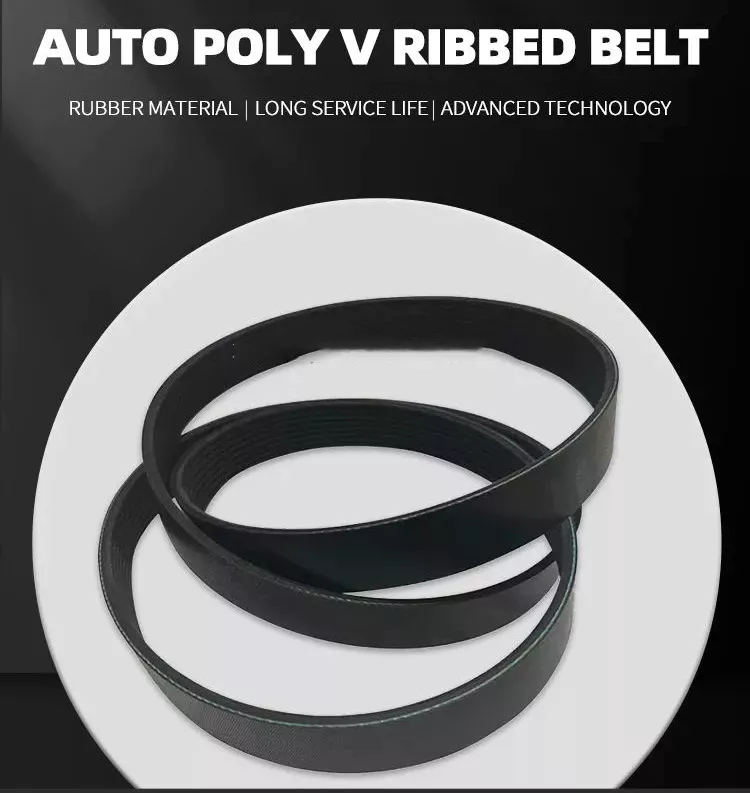
Link-type V-belt
A laminated link-type V-belt is 1 embodiment of the present invention. The belt comprises individual lamina sections connected longitudinally by studs and tubes, each of which has at least 1 connecting means. The slots in the links allow for a full share of the load to be transferred through the belt, and they also reduce substantially all internal mechanical stresses. The belt is preferably designed to extend substantially the entire width of the machine being driven.
Conventional link-type V-belts are installed between 2 pulleys on the tight side of the V-drive. A wide end of a link moves in the direction of rotation, while the stud of a second, smaller link pulls the nose end of the third link forward. The shank of the stud pivots on a solid fabric located in hole 2 of the third link below. The bottom link, however, curls over the stud and the belt is assembled.
The present invention offers an improved method of forming a link-type V-belt. The belt is manufactured using links and does not have to be fitted as tightly as conventional link-type V-belts. This belt is flexible and strong enough to handle normal tension loads in a well-designed drive. In addition, the belts made using the present invention will have a longer life, thereby extending the drive’s load-carrying capacity.
Classical V-belt
A classical trapezoidal belt profile makes the VB Classical V-belt ideal for various industrial applications. Available in small sizes from 5mm to 3mm, these belts are available with cogged or raw edges. Their highly engineered construction makes them ideal for a variety of uses. These belts are commonly used in motors, compressors, milling machines, mixers, and other mechanical devices. To determine the right belt for your application, consider the following factors.
The classic v-belt is the most common and economically-priced type of v-belt. They are manufactured using special formulated rubber reinforced with polyester cords. These belts can span from 16 inches to 400 inches in length. The classic V-belt is also very easy to replace. The belt’s outer diameter and pitch can be measured. The length is typically standardized by the Association for Rubber Product Manufacturers.
Typically, classical V-belts are used in single-belt drives. Because they don’t require lubrication or maintenance, these belts are often available in sizes A and B. However, larger belt sizes are rarely used for single-belt drives. In such cases, multiple A or B belts are an economical alternative to single-belt C. In addition, narrower-profile V-belts provide higher power ratings than conventional V-belts because of their higher depth-to-width ratio. These belts are ideal for heavy-duty applications.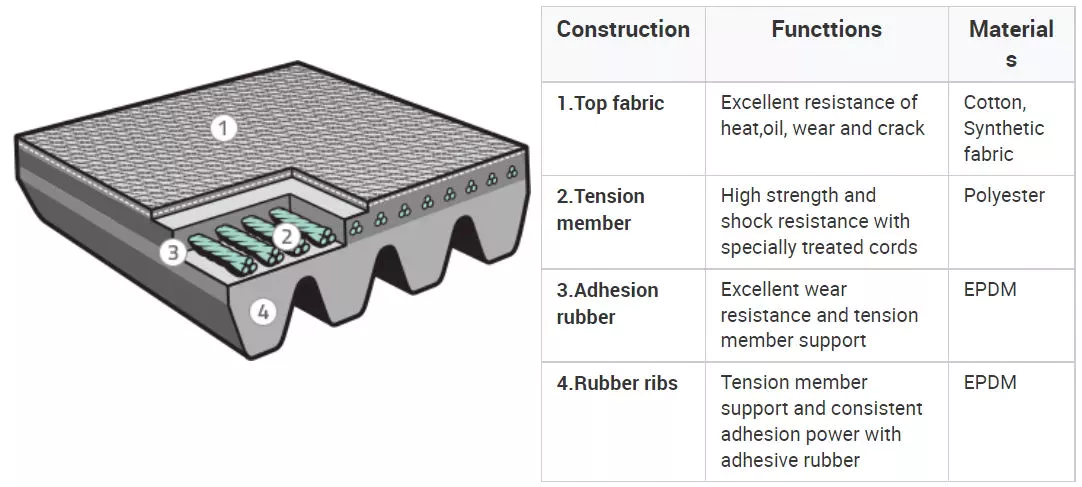
Narrow V-belt
The narrow v-belt is the same as a conventional v-belt, but it has a smaller top and bottom width. This makes it suitable for higher horsepower applications, and it is used in high-end sports cars. Narrow v-belts are generally characterized by a letter “v” on the top side and a length of outside dimensions of 1.6:1.
The steel wires that comprise the core of the v-belt are endless and are free of joints. This provides the strength required for torque transmission. A base rubber compound is placed around the steel wire and acts as a medium of compression and shock absorption during power transmission. A plastic layer acts as a protective cover, and provides the rubber with a degree of temperature tolerance. While choosing a narrow v-belt, it is important to keep in mind that there are some disadvantages to a narrow V-belt.
For example, a narrow V-belt is suitable for high-power applications, and may be used in a small assembly space. Its narrow profile also allows it to be space-saving in layout and allows high-speed drives without additional belts. Furthermore, it reduces operating and maintenance costs. It is ideal for applications where space is limited, and a high torque is required. The benefits of a narrow V-belt are plentiful.
Banded belt
Identifying a banded v-belt can be tricky, but there are a few signs that can indicate a possible problem. Cracked belts can be difficult to spot, but they can be an early indicator of a more serious problem. Look for cracked underside edges, worn covers, and misplaced slack. If 1 or more of these factors applies to your belt, you may want to seek a replacement.
Banded v-belts are made with an elastomer core. The main component of this belt is the elastomer, which is used for the band’s flexural strength and shock resistance. It’s sometimes separated into 2 sections, with each section connected to the other by a tension cord. This gives the belt its trapezium cross-section, which increases tensile strength.
The 2 main types of banded v-belts are wrapped or raw edge. Wrapped v-belts have a fiber-covered body while raw edge belts are uncovered. Banded v-belts are often classified by their cross-section, and include: standard v-belt, wedge v-belt, narrow versus double v-belt, cogged v-belt, and double t-belt.
Banded v-belts are popular with commercial applications. Whether you’re looking for a 2V-belt or a large 8V-belt, V-Belt Guys has what you need. We also stock a wide variety of different banded v-belts and can help you find 1 that fits your needs and budget. Take a look at our selection today!
Traditional V-belt
Although a traditional V-belt may be a glorified rubber band, modern variations reflect advances in engineering. Proper installation and maintenance are essential for trouble-free service. When you are replacing a traditional V-belt, be sure to follow these simple steps to ensure its longevity. Read on to learn more. Listed below are the features of each type of V-belt. Identify the type of belt you need by measuring its top width, circumference, and dimensions.
TEC Traditional V-belts have an exceptionally low slip rate and are resistant to high operating temperatures. These types of belts do not experience early belt aging. They are also highly resistant to poor operating conditions. However, the maintenance is more extensive than other types of belts. A typical V-belt part number is B50, which is the cross-section size of a 50-inch belt. The belt’s lifespan is greatly increased because of this feature.
A ribbed V-belt is another option. It has a deeper V than a traditional V-belt. The ribs in this type are narrower and more flexible. These ribs are smaller than the classic V-belt, but they can transmit 3 times as much horsepower. Because they are thinner, these belts are more flexible than traditional V-belts. The thickness of the ribs is less critical.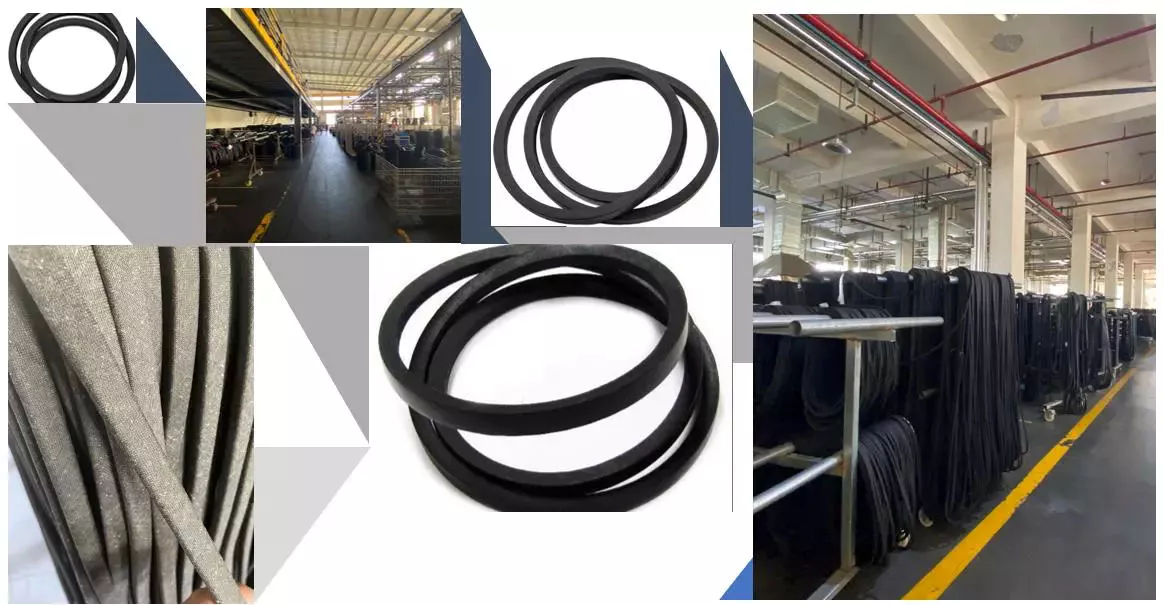
Metric V-belt
Metric V-belts are made to a more precise standard than their American counterparts. These belts are manufactured to meet ARPM tolerances, making them suitable for industrial, machine, and food processing applications. This metric system is also more convenient than converting between the 2 units. Listed below are the most common uses for a Metric V-belt. If you’re in the market for a new belt, consider ordering a metric one.Metric V-belts are made to a more precise standard than their American counterparts. These belts are manufactured to meet ARPM tolerances, making them suitable for industrial, machine, and food processing applications. This metric system is also more convenient than converting between the 2 units. Listed below are the most common uses for a Metric V-belt. If you’re in the market for a new belt, consider ordering a metric one.
Metric V-belts are generally more durable than their equivalents made of standard American-sized belts. Metric V-belts are available in many different sizes to fit different machineries. In addition to offering superior load-carrying capacity, Metric Power(tm) V-belts are known for their exceptional flex and stretch characteristics. For optimum performance in textile mills, food processing, and machine tool applications, Metric Power(tm) V-belts are manufactured using a proprietary construction that combines a higher load-carrying capacity with superior flex and stretch.
Metric belts can generate 50% to 100% more horsepower than conventional and classic sectioned belts. This is achieved through improved construction and placement of the cord line. These belts also have unique wedge designs that help them support the cord in motion. However, you must ensure the proper tension when buying a Metric V-belt, because improper tension may damage the belt. They are compatible with both U.S. and international standards.


China high quality CZPT China Deep Groove Double Row Ball Bearing Factory Tensioner Pully 55567191 for Chevroletopel Car Belt3007720 Tapered Roller Bearings with high quality
Product Description
HangZhou CZPT CO., LTD
Factory Add: Pannan Village, Panzhuang Town, HangZhou City, HangZhou City, ZheJiang Province, China
Main Products:
*Deep Groove Ball Bearing
*Self-Aligning Ball Bearing
*Cylindrical Roller Bearings
*Spherical Roller Bearing
*Angular Contact Ball Bearings
*Tapered Roller Bearings
*Thrust Ball Bearing
*Thrust Roller Bearing
*Spherical Bearings
*Thin-Walled Bearings
*Miniature Bearings
*Needle Bearing
XINHUO BEARING CHINA DEEP GROOVE DOUBLE ROW BALL BEARING FACTORY TENSIONER PULLY 55567191 FOR CHEVROLETOPEL CAR BELT305710 TAPERED ROLLER BEARINGS
Product Description
|
Product Name |
Tapered Roller Bearing |
|
Type |
Tapered Roller Bearing |
|
Structure |
Tapered roller, retainer, inner and outer ring tapered |
|
Applicable Industries |
Building materials workshop, construction engineering, machinery maintenance workshop, retail, manufacturing plant, motor, |
|
Brand Name |
XINHUO/RPZ/XWFD |
|
Size |
20mm-500mm |
|
Accuracy Class |
P6,P0,P4,P5 |
|
Seal Type |
open / rubber seal |
|
Seal Number of Rows |
Single row / Double row / Four-row |
|
Origin |
ZheJiang , China |
|
Retainer |
Steel, Brass |
|
Material |
GCr15 |
|
Service |
OEM / ODM |
|
Features |
Long-life High Speed |
| Tapered Roller Bearing | |||||
| 35713 | 30302 | 32205 | 7718 | 32005 | 31306 |
| 35714 | 30303 | 32206 | 27616 | 32006 | 31307 |
| 35715 | 30304 | 32207 | 27606 | 32007 | 31308 |
| 35716 | 30305 | 32208 | 27607 | 32008 | 31309 |
| 35717 | 30306 | 32209 | 57707 | 32009 | 31310 |
| 35718 | 30307 | 32210 | 27613 | 32571 | 31311 |
| 35719 | 30308 | 32211 | 7804 | 32011 | 31312 |
| 35710 | 30309 | 32212 | 7805 | 32012 | 31313 |
| 35711 | 3571 | 6-7512 | 7806 | 32013 | 31314 |
| 35712 | 3571 | 32213 | 7807 | 32014 | 31315 |
| 35713 | 3571 | 32214 | 7809 | 32015 | 30309X2B |
| 35714 | 3571 | 32215 | 807813 | 32016 | 30611B |
| 35715 | 3571 | 32216 | 7815 | 32017 | 30613B |
| 35716 | 3571 | 32217 | 7816 | 32018 | |
| 35717 | 3 0571 | 32218 | 7819 | 32019 | 305715 |
| 35718 | 3 0571 | 32219 | 717813(390A) | 32571 | 305716 |
| 35719 | 3 0571 | 32220 | 7909 | 32571 | 305717 |
| 35710 | 3571 | 32221 | 7724 | 32571 | 305718 |
| 35711 | 30320 | 32222 | 7723 | 32571 | 305719 |
| 35712 | 30322 | 32224 | 7705 | 32026 | 35710 |
| 35714 | 30324 | 32226 | 7706 | 32571 | 35711 |
| 35716 | 30326 | 32228 | 7707 | 32030 | 35712 |
| 35718 | 30328 | 32230 | 27310 | 32032 | 35713 |
| 35710 | 30330 | 32232 | 27312 | 32034 | 35714 |
| 35712 | 30332 | 32234 | 27313 | 32036 | 35715 |
| 35714 | 30334 | 32236 | 27911 | 32038 | 35716 |
| 35716 | 32238 | 32040 | 35717 | ||
| 35718 | 32240 | 30 0571 8 | 32044 | 35718 | |
| 35710 | 3007205 | 32244 | 30 0571 9 | 32048 | 35719 |
| 35714 | 3007206 | 32248 | 305710 | 32052 | 30 0571 0 |
| 3007207 | 32252 | 305711 | 30 0571 1 | ||
| 3007208 | 32209XB2 | 305712 | 30 0571 2 | ||
| 3007209 | 32304 | 305713 | 30 0571 4 | ||
| 3007210 | 32305 | 305714 | 30 0571 6 | ||
| 3007211 | 32306 | 305715 | 30 0571 8 | ||
| 30571 | 32307 | 305716 | 30 0571 0 | ||
| 3007213 | 32308 | 305717 | |||
| 3007214 | 32309 | 305718 | |||
| 3007215 | 32310 | 305719 | |||
| 3007216 | 32311 | 305710 | |||
| 3007217 | 32312 | 305711 | |||
| 3007218 | 32313 | 305712 | |||
| 3007219 | 32314 | 305714 | |||
| 30 0571 0 | 32315 | ||||
| 30 0571 1 | 32316 | ||||
| 32317 | |||||
| 32318 | |||||
| 32319 | |||||
| 32320 | |||||
| 32321 | |||||
| 32322 | |||||
| 32324 | |||||
| 32326 | |||||
| 32328 | |||||
| 32330 | |||||
| 32332 | |||||
| 32334 | |||||
| 32336 | |||||
| 32338 | |||||
FAQ
Q1:What is your Before-sales Service?
1>. Offer to bear related consultation about technology and application;
2>.Help customers with bearing choice, clearance configuration, products” life and reliability analysis;
3>. Offer highly cost-effective and complete solution program according to site conditions;
4>. Offer localized program on introduced equipment to save running cost
Q2: What is your After-sales Service?
1>. Offer training about bearing installation and maintenance;
2>.Help customers with trouble diagnosis and failure analysis;
3>. Visit customers regularly and feedback their rational suggestions and requirements to the company.
Q3: How about your company’s strength?
1>.FREE SAMPLES:
contact us by email or trade manager, we will send the free samples according to your request.
2>. World-Class Bearing:
We provide our customers with all types of indigenous roller bearings with world-class quality.
3>.OEM or Non-Stand Bearings:
Any requirement for Nonstandard roller bearings is Easily Fulfilled by us due to its vast knowledge and links in the industry.
4>.Genuine products With Excellent Quality:
The company has always proved the 100% quality products it provides with genuine intent.
5>. After Sales Service and Technical Assistance:
The company provides after-sales service and technical assistance as per the customer’s requirements and needs.
6>.Quick Delivery:
The company provides just-in-time delivery with its streamlined supply chain.
7>.Cost Saving:
We provide long-life, shock-resistant, and high-reliability roller bearings with excellent quality and better performance.
Resulting in increased cost savings.
Q4: What will we do if you are not satisfied with the product?
A: If have any abnormal, Please contact us at the first time, we will immediately process
Q5: How long will you respond to our problems?
A: We will respond within 1 hour. 24 hours to solve your problem
Q6: Is optional lubrication provided?
A: We can offer a wide range of oils and greases for a variety of applications. Please contact our engineer for technical
assistance with any special requirements
Choosing a V-Belt
When choosing a v-belt, you should understand the characteristics of each type and how they affect the performance of your machine. Listed below are the characteristics of Cogged, Narrow profile, and wide v-belts. Learn about the advantages and disadvantages of each. Choose the right v-belt for your machine to maximize its performance. Learn about the different materials used to make v-belts and how they influence the performance of your machine.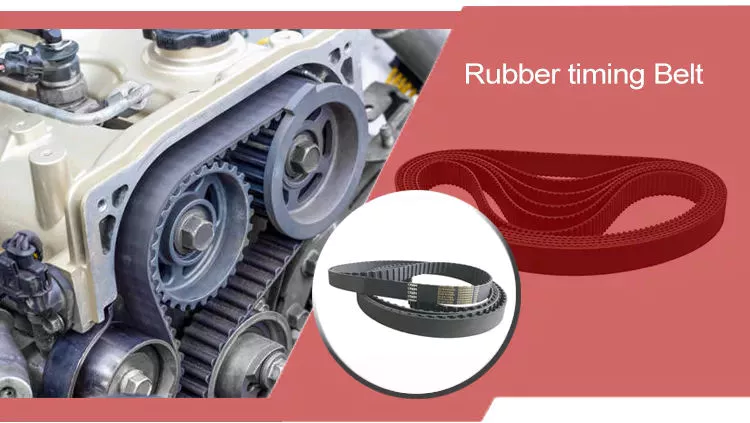
Narrow v-belts
While the flat belts are the most common type of v-belt, narrow v-belts are also a common option for industrial applications. These belts are similar to wedge belts in that they transmit heavier loads, but in a smaller form. Narrow v-belts are typically designated as 3V, 5V, and 8V and are denoted by their top width, multiplied by an eighth of an inch. Narrow v-belt sections conform to a wedge belt profile and are usually standardized by manufacturers. For example, section 3V corresponds to a wedge-type profile, while section 5V corresponds to SPB.
Both narrow and conventional v-belts are made of rubber stocks, which are generally composed of polymer or synthetic rubber. Fabric materials may be used to cover the stock material, adding a layer of reinforcement and protection. Narrow v-belts have a higher power rating than traditional V-belts. This is due to their greater depth-to-width ratio, which puts more of the reinforcing cord beneath the sheave.
The Wedge TLP ™ Narrow V-belt from Continental features a homogeneous one-piece design for maximum strength and long-term performance. These belts feature a high-denier cord and can handle significant horsepower increases. These belts are ideal for industrial applications. However, they are not as durable as their wider counterparts. The Wedge TLP is also an excellent choice for heavy-duty industrial applications.
Cogged v-belts
A key benefit of cogged v-belts is their ability to increase power output without sacrificing reliability. These belts are designed with precision-engineered cogs, which allow them to fit into smaller pulleys without reducing power output. Their raw-edge sidewalls and specially formulated EPDM rubber compound also help provide grip power. Cogged v-belts are manufactured by Carlisle(r) and offer several advantages over conventional belts.
The performance benefits of Cogged V-Belts are widely acknowledged. The company uses added-strength EPDM compounds in their belts to help reduce downtime and energy consumption. They are ideal for demanding applications such as power transmission. These belts are available in a variety of sizes and cross-sections. The section number of Cogged v-belts is H3V, H4V, and H5V.
The main difference between cogged v-belts and wedge belts is in the contact angle. While wedge and cogged v-belts have the same contact angle, the design and construction differs. Cogged v-belts typically include top and bottom layers of rubber, dampening rubber, tension cords, and top and bottom metal rings. Polychloroprene and polyester cords are common materials for the top and bottom layers, while aramid fibers are used for punishing applications.
Cogged v-belts are more flexible than traditional v-belts. Because of the slots on the belt surface, they reduce bending resistance. They are compatible with the same pulleys as standard v-belts, and run cooler and longer. They are also more efficient than standard V-belts. If you are considering a cogged V-belt for your application, it may be worth it to investigate the benefits of this belt type.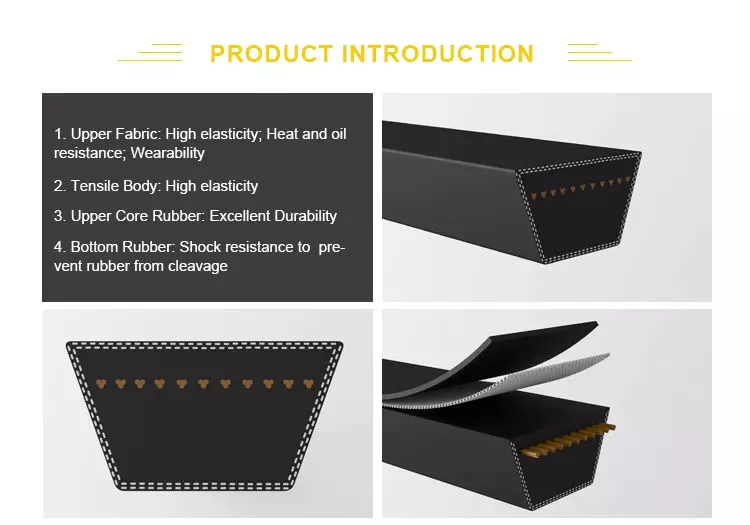
Wide v-belts
Variable-speed v-belts are wider in cross section than classical v-belts. The design of variable-speed v-belts varies depending on the manufacturer, but generally features a parallel top and bottom surface. This type of v-belt wedges tightly into its pulley’s grooves, reducing power loss and slippage. This type of v-belt is best suited to applications where speed changes frequently.
High-performance Wide V-belts feature a fibre-reinforced EPDM rubber base. The resulting supercharged EPDM mix is better suited for applications where the belts are subject to higher temperatures. This type of drive belt can also replace existing drives with ease and efficiency. CZPT offers a wide range of drive belts for all applications. For applications where slack is an issue, wrapped V-belts are a smart choice.
Narrow-V-belts, on the other hand, have a more favorable height-to-width ratio. This means that a narrow-V belt can be smaller while still providing the same power transmission. These belts also have a lower mass, which reduces centrifugal forces and enables higher speeds. However, narrow-V-belts are prone to wear, but are still a popular choice in many applications.
In addition to being more durable, wrapped-V-belts have fabric-coated edges for better heat resistance. The material covering wrapped-V-belts also protects them from damage from friction and external contaminants. Unlike their rigid counterparts, these wide-V-belts have an improved lifespan and require less maintenance and downtime. These are excellent alternatives to conventional v-belts. So, what are the benefits of Wide-V-belts?
Narrow profile v-belts
When it comes to choosing the best V-belt for your needs, it is important to understand the differences between narrow profile and classical. Narrow profile V-belts are generally narrower in cross-section than classical v-belts. This makes them ideal for high-speed compact drives and light-duty applications. The following section details the differences between narrow and classical v-belts.
The tensile cords, or “cords,” are embedded into the rubber compound. These cords are the main power-transmitting component of a narrow profile v-belt. The tension cords are located at the pitch diameter of the belt cross-section and increase the tensile strength. They are typically made of steel, aramid fibers, or polyester. The core is usually made of polyurethane, but other materials can be used.
When measuring the v-belt’s width, it is important to understand the various sign-codes. Some v-belts have the wrong sign-coding schema. For example, a classical profile belt should be read as Lw = 3522 mm, while a narrow profile belt should be read as La=3553mm. A narrow profile v-belt has a steeper side-wall, which increases the wedging action. Moreover, the narrow profile v-belt has higher load capacity.
Despite their name, narrow profile v-belts are the most widely used and versatile type of v-belts. They are also the easiest to install. Their general size is similar to that of a wedge, and their number is derived from their numerical prefix. A narrow profile v-belt with a 3L300 part number is 3/8″ wide and 300.0 inches long.
Wide profile v-belts
Wide profile v-belts are designed for heavy-duty applications where extreme performance is required. They are ideal for such applications due to their high-flexural strength and shock-resistance. They also come with many benefits, including good noise-reduction, increased sturdiness, and easy maintenance. This article explores the features of wide profile v-belts and how they can benefit your business.
Classical v-belts have an internal dimensional metric marking called the “CZPT.” This identifies each specific belt. Generally, this number is a combination of the normal profile size designation letter and the internal length in inches. The inside length of the v-belt is indicated on the index of the v-belt. To begin installing the v-belt, mark the floor where it will be hung. Tape the end stop marker to the first stick.
Narrow v-belts are narrower than standard wide v-belts. They are also available in raw-edge cogged profiles and are intended for light-duty applications. Narrow V-belts are also available in 4 sizes. Compared to standard wide profile v-belts, narrow v-belts are most appropriate for high-speed, compact drives. However, wide profile v-belts are generally longer than narrow V-belts.
A v-belt is composed of different types of rubber and reinforcements. It undergoes tensile and compressive stresses on both sides. The top side of a v-belt experiences longitudinal tensile force, while the bottom side is subjected to compression against a pulley. Moreover, the included angle of a v-belt section is 40 deg. Various types of v-belts are available according to their cross-sections and performance specifications.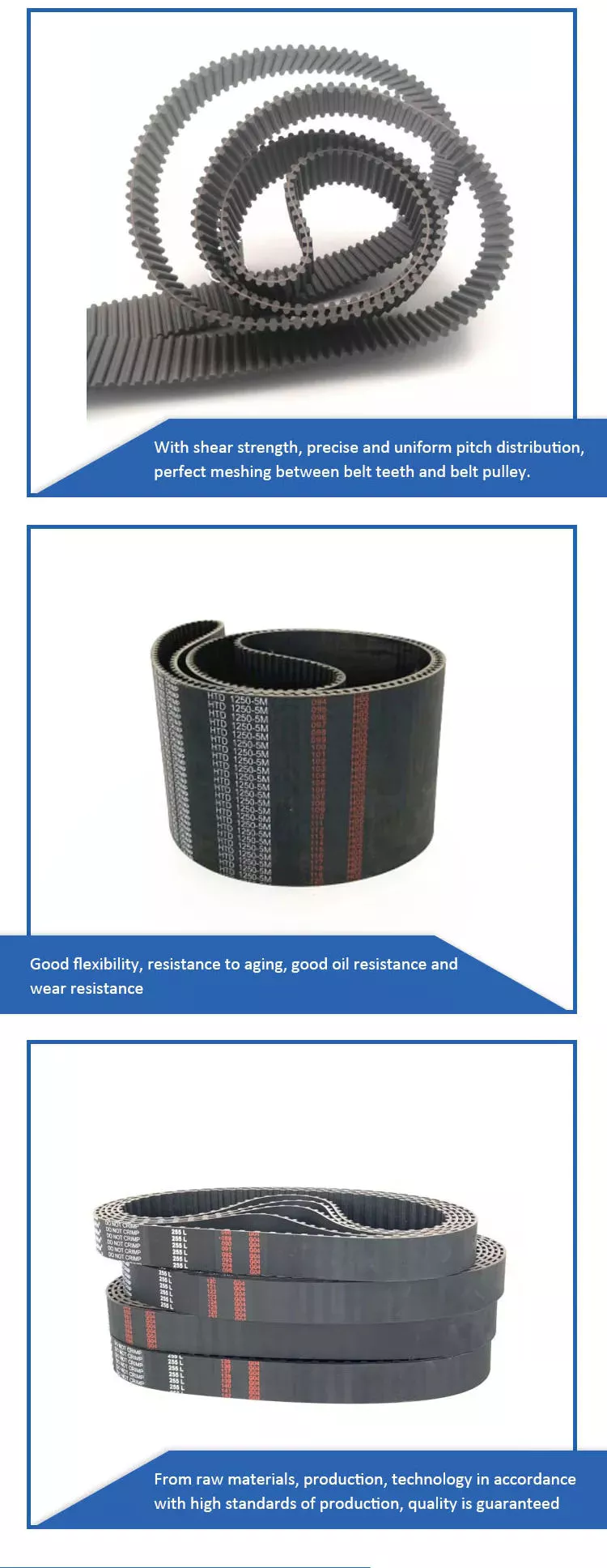
Standard v-belts
If you are installing v-belts, you must know the right way to measure them. Many v-belts are mislabelled as classic or SPA. If you are unsure of which 1 to choose, you can refer to the standard v-belts index. The basic way to measure v-belts is by using a measuring tape or a cable tie. Using the right technique will ensure you get the right length.
A well-engineered V-belt is made from an elastomer core, which is a material that is resistant to abrasion. The elastomer core is usually composed of polyurethane, which has excellent flexural strength and shock resistance. In addition to the elastomer core, a fabric cover protects the core from wear and environmental forces. Its fabric cover is treated to form a chemical bond with the belt core, which increases the fabric’s resistance to constant bending.
The cross-section of a standard V-belt is commonly described as a trapezium, with its top and bottom sides parallel. Knowing the cross-section of a standard V-belt is essential in matching it with a pulley. It is also important to know how the v-belt is positioned on a pulley and how to select the right belt for the job.


China OEM High quality drive shaft center support bearing 5-37516-005-1 with Good quality
Design: ELF, 4BD1, NPR
Yr: 1985-1992, 1994-1999, 1986~571-8822571/8822 0571 17, 1998-2004, 1992-2002, 1986~571-8822571/8822 0571 18, 1986-1991, 1980-2006
OE NO.: 5-37516-005-1
Vehicle Fitment: ISUZU
Dimension: OEM Regular Size, OEM Standard Dimension
Material: Rubber, metallic
Design Amount: 5-37516-005-one
Warranty: 12 Months
Automobile Make: Japan Automobiles
Sort: Travel shaft heart bearing
Colour: Black
Application: ISUZU
Product Identify: Middle Bearing Set
Applicable designs: Japan Cars
Rubber, Automobile transmission CV joint travel shaft steel: Rubber, metal
Place of origin: China
Fifty percent axis position: Proper Push Shaft,Remaining Travel Shaft
product quantity: 5-37516-005-one
Packaging Particulars: 1. Neutral packing, with/with out branded symbol 2. Personalized packing 3. Normal export packing containers and cartons with/with out RH branded brand 4. Carton with/with no printed product’s name-travel shaft heart support bearing.
Port: HangZhou OR Needed PORT
OEM No.
5-37516-005-1
Bearing I.D.
forty mm
Color
Black
Software
ISUZU
Merchandise Identify
Travel shaft middle bearing
Warranty
1 year
Kind
Japan vehicles
MOQ
one hundred Items
Design Variety
5-37516-005-1
Price tag
$ 1-5 USD
Brand name Name
RH or tailored
Port
XiaMen or else
Requirements1. Offer to United states, Europe, Austrilia, Southeast Asia and Middle East 2. Matrial: rubber cushion, iron, bearing material3. Specialist perfomance automobile parts supplier 4. Implement to Japan CZPT vehicles
Comprehensive Photographs Other Items Our Firm Nan’An RuiCheng Transportation Machinery Co., Plastic Gearbox Friction Electrical power Car Components Friction Gear Box Ltd. founded in 1980’s is a skilled maker of drive shaft center assistance bearings, motor mountings and hydraulic bottle jacks. We have 3 principal factories for rubber areas generation, stamping areas creation and painting. In 2013, we started our new task – Substantial-Quality Hydraulic Jacks. Until now, our manufacturing unit location is more than 15000 sq. meter, and our workshops are a lot more than 20000 sq. meter. We have eighty-a hundred employees, like 10% engineers and officers for creating new merchandise.
Packing & Delivery Our most specialist packagingTransport of large vehicles to the seaportAnd international transport cooperationOur Service1. OEM Producing welcome: Normal process and package deal 2. Sample order MOQ >=100 pieces3. We will reply you for your inquiry in 24 hours.4. Soon after shipping, we will monitor the merchandise for you once each 2 days, until you get the products. When you received the merchandise, take a look at them, Single nylon sheave cable pulley Nylon hook cable pulley and give me a suggestions. If you have any queries about the difficulty, speak to with us, we will provide the options for you.
FAQQ1. Why decide on our items?A: More than thirty years’ expertise in middle bearing/motor mount productions, we use larger material of organic rubber CZPT >60% with substantial good quality and competitive manufacturing facility price.Q2. What is your conditions of packing?A: Usually, we pack our items in neutral white or brown containers and brown cartons. If you buy the tailored items, we can help to make the branded boxes and pack the goods as your request.Q3. What is your terms of payment?A: T/T thirty% as deposit just before creation, and 70% before shipping and delivery. We’ll present you the photographs of the merchandise and packages just before you spend the balance to make confident you happy.Q4. What is your terms of supply?A: EXW, FOB.Q5. How about your shipping and delivery time?A: Typically, it will just take 10 to thirty days following getting your advance payment. The particular delivery time relies upon on the objects and the amount of your buy.Q6. Can you produce in accordance to the samples?A: Indeed, we can make by your samples or technical drawings. We can construct the molds and fixtures.Q7. What is your sample coverage?A: We can provide the sample if we have ready parts in inventory, but the consumers have to shell out the sample price and the courier price.Q8: How do you make our company long-phrase and very good romantic relationship?A: We maintain very good high quality and competitive price tag to make certain our consumers benefit Attractive Value New Sort Flat Fork Shaft Motorcycle Swing Arm Shaft Drive Tongtou Loukong Flat Fork For CZPT Y15zr B: We respect each buyer as our friend and we sincerely do organization and make buddies with them, no make a difference where they appear from.
Driveshaft structure and vibrations connected with it
The construction of the travel shaft is crucial to its performance and trustworthiness. Generate shafts usually have claw couplings, rag joints and universal joints. Other travel shafts have prismatic or splined joints. Learn about the various types of generate shafts and how they function. If you want to know the vibrations linked with them, go through on. But 1st, let’s define what a driveshaft is.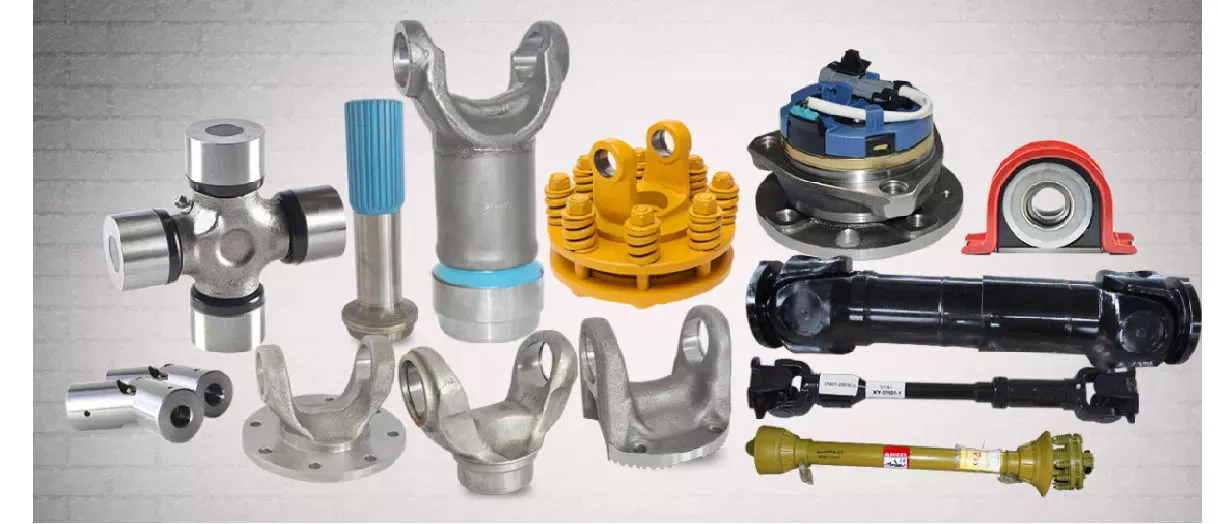
transmission shaft
As the need on our cars continues to improve, so does the demand on our drive systems. Higher CO2 emission standards and stricter emission requirements boost the stress on the generate system although enhancing ease and comfort and shortening the turning radius. These and other negative effects can location important pressure and use on components, which can lead to driveshaft failure and improve car safety dangers. For that reason, the travel shaft must be inspected and changed regularly.
Based on your product, you may only need to have to exchange 1 driveshaft. Nonetheless, the cost to change the two driveshafts ranges from $650 to $1850. Furthermore, you may possibly incur labor expenses ranging from $a hundred and forty to $250. The labor price will count on your vehicle product and its drivetrain type. In general, nevertheless, the expense of replacing a driveshaft ranges from $470 to $1850.
Regionally, the automotive driveshaft marketplace can be divided into 4 major markets: North The usa, Europe, Asia Pacific, and Relaxation of the World. North The united states is expected to dominate the market, even though Europe and Asia Pacific are expected to develop the fastest. Moreover, the market place is predicted to develop at the highest rate in the potential, driven by financial expansion in the Asia Pacific location. In addition, most of the autos bought globally are produced in these regions.
The most important function of the driveshaft is to transfer the power of the engine to useful function. Push shafts are also recognized as propeller shafts and cardan shafts. In a automobile, a propshaft transfers torque from the engine, transmission, and differential to the entrance or rear wheels, or the two. Because of to the complexity of driveshaft assemblies, they are crucial to automobile protection. In addition to transmitting torque from the motor, they should also compensate for deflection, angular modifications and duration modifications.
sort
Diverse varieties of push shafts contain helical shafts, gear shafts, worm shafts, planetary shafts and synchronous shafts. Radial protruding pins on the head give a rotationally secure connection. At the very least one bearing has a groove extending together its circumferential length that makes it possible for the pin to pass by way of the bearing. There can also be two flanges on every single finish of the shaft. Depending on the software, the shaft can be installed in the most convenient spot to purpose.
Propeller shafts are usually made of higher-good quality metal with substantial certain energy and modulus. However, they can also be created from innovative composite supplies this sort of as carbon fiber, Kevlar and fiberglass. An additional sort of propeller shaft is manufactured of thermoplastic polyamide, which is rigid and has a high power-to-fat ratio. Both push shafts and screw shafts are employed to generate automobiles, ships and bikes.
Sliding and tubular yokes are frequent parts of push shafts. By style, their angles have to be equal or intersect to provide the correct angle of procedure. Unless the working angles are equal, the shaft vibrates two times per revolution, leading to torsional vibrations. The greatest way to keep away from this is to make certain the two yokes are properly aligned. Crucially, these factors have the very same operating angle to ensure sleek energy movement.
The variety of travel shaft differs according to the variety of motor. Some are geared, while other people are non-geared. In some instances, the travel shaft is fastened and the motor can rotate and steer. Alternatively, a adaptable shaft can be utilised to manage the velocity and route of the drive. In some programs exactly where linear electricity transmission is not feasible, flexible shafts are a beneficial selection. For instance, adaptable shafts can be utilized in portable devices.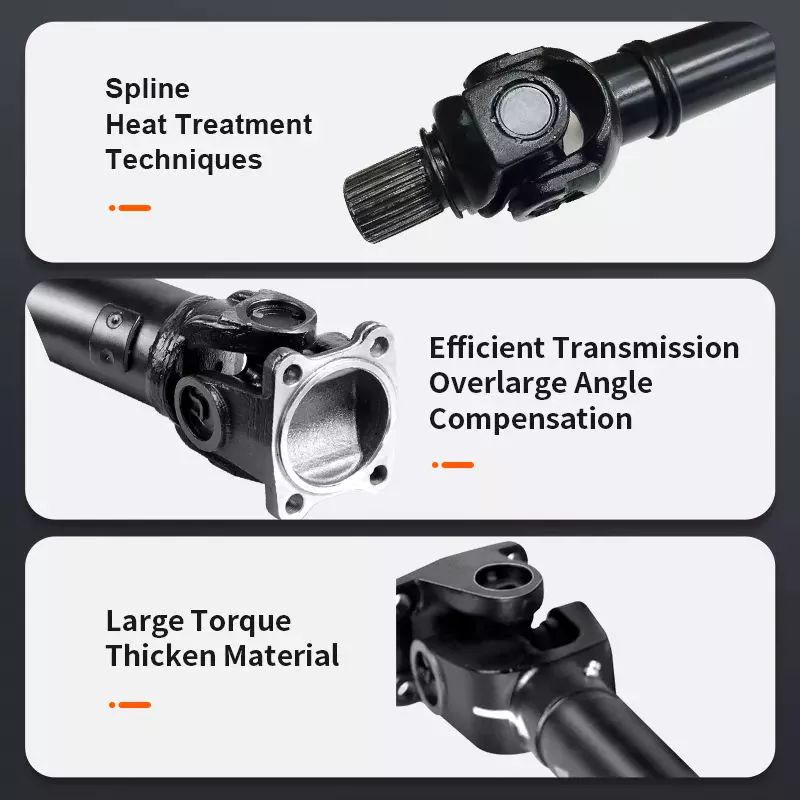
set up
The construction of the travel shaft has a lot of positive aspects over bare metallic. A shaft that is flexible in multiple directions is less difficult to preserve than a shaft that is rigid in other directions. The shaft body and coupling flange can be made of various supplies, and the flange can be created of a various material than the primary shaft entire body. For illustration, the coupling flange can be created of steel. The primary shaft human body is if possible flared on at the very least one particular finish, and the at the very least a single coupling flange involves a very first typically frustoconical projection extending into the flared conclude of the primary shaft physique.
The regular stiffness of fiber-dependent shafts is reached by the orientation of parallel fibers together the size of the shaft. Even so, the bending stiffness of this shaft is diminished thanks to the alter in fiber orientation. Because the fibers proceed to vacation in the exact same route from the first end to the second end, the reinforcement that boosts the torsional stiffness of the shaft is not influenced. In contrast, a fiber-dependent shaft is also flexible because it utilizes ribs that are about 90 degrees from the centerline of the shaft.
In addition to the helical ribs, the travel shaft a hundred might also have reinforcing components. These reinforcing elements preserve the structural integrity of the shaft. These reinforcing components are known as helical ribs. They have ribs on the two the outer and inner surfaces. This is to avert shaft breakage. These components can also be formed to be adaptable enough to accommodate some of the forces generated by the generate. Shafts can be developed using these methods and produced into worm-like travel shafts.
vibration
The most typical trigger of generate shaft vibration is improper set up. There are five frequent kinds of driveshaft vibration, each and every connected to set up parameters. To avert this from taking place, you ought to comprehend what triggers these vibrations and how to correct them. The most common sorts of vibration are listed underneath. This article describes some widespread push shaft vibration options. It might also be useful to take into account the tips of a professional vibration technician for travel shaft vibration handle.
If you might be not positive if the dilemma is the driveshaft or the motor, try turning on the stereo. Thicker carpet kits can also mask vibrations. Nonetheless, you must contact an professional as quickly as feasible. If vibration persists following vibration-connected repairs, the driveshaft wants to be replaced. If the driveshaft is still underneath guarantee, you can repair it by yourself.
CV joints are the most widespread trigger of 3rd-order driveshaft vibration. If they are binding or fail, they need to be replaced. Alternatively, your CV joints may possibly just be misaligned. If it is loose, you can verify the CV connector. An additional common result in of push shaft vibration is inappropriate assembly. Poor alignment of the yokes on both finishes of the shaft can result in them to vibrate.
Incorrect trim top can also lead to driveshaft vibration. Right trim height is essential to stop generate shaft wobble. Whether or not your car is new or old, you can perform some fundamental fixes to decrease problems. One particular of these options involves balancing the push shaft. Initial, use the hose clamps to connect the weights to it. Following, attach an ounce of excess weight to it and spin it. By performing this, you decrease the frequency of vibration.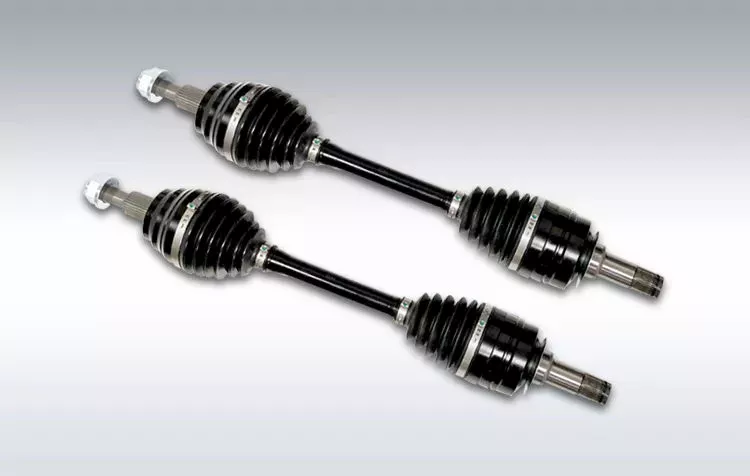
expense
The international driveshaft industry is expected to exceed (xxx) million USD by 2028, expanding at a compound annual expansion charge (CAGR) of XX%. Its soaring progress can be attributed to many elements, including rising urbanization and R&D investments by foremost industry gamers. The report also involves an in-depth investigation of crucial market tendencies and their impact on the market. In addition, the report supplies a extensive regional investigation of the Driveshaft Industry.
The price of changing the push shaft is dependent on the variety of restore needed and the cause of the failure. Typical fix expenses variety from $three hundred to $750. Rear-wheel drive autos typically value more. But entrance-wheel generate vehicles cost considerably less than four-wheel generate automobiles. You may also pick to try out repairing the driveshaft yourself. Nonetheless, it is crucial to do your research and make confident you have the required equipment and gear to complete the job appropriately.
The report also covers the aggressive landscape of the Push Shafts industry. It involves graphical representations, detailed figures, administration policies, and governance components. Furthermore, it contains a thorough price examination. Additionally, the report presents sights on the COVID-19 marketplace and future developments. The report also offers useful data to assist you make a decision how to contend in your business. When you acquire a report like this, you are adding credibility to your perform.
A quality driveshaft can boost your recreation by making sure length from the tee and enhancing responsiveness. The new material in the shaft building is lighter, more powerful and more responsive than ever ahead of, so it is turning out to be a crucial portion of the driver. And there are a selection of alternatives to go well with any price range. The primary issue to think about when purchasing a shaft is its high quality. Nevertheless, it truly is important to note that quality doesn’t arrive inexpensive and you need to constantly select an axle primarily based on what your budget can handle.

